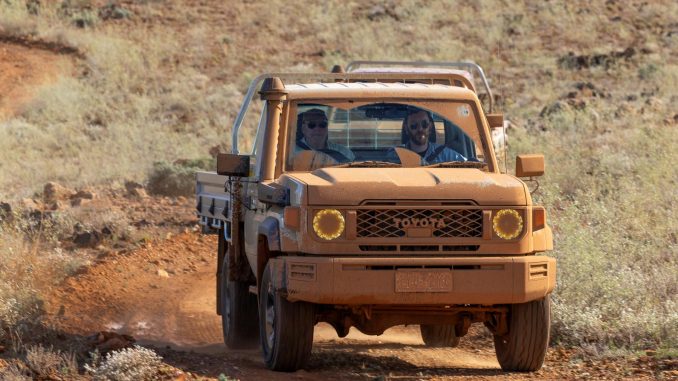
Toyota LC70 Series launched
Toyota LC70 Series 2024 upgraded work Utes, wagon and troop carrier have been launched. In the article below there is a lot of information, but in this update, we will go over the highlights ands well as pricing for the updated LC70 series.
The LC70 Series comes in four body styles the single cab chassis and dual cab chassis, troop carrier and wagon.
It comes with a choice of two engines that defines the transmission choices.
- The traditional 1VD-FTV 4.5-litre turbodiesel V8 engine and five-speed manual transmission.
- The modified 1GD 2.8-litre turbodiesel four-cylinder engine mated to a six-speed automatic transmission.
The benefits of the 1GD 2.8-litre turbodiesel four-cylinder engine
- Same power and 70Nm more torque
- Same torque at 1200rpm as V8 peak torque
- Automatic transmission with torque converter
- More functionality, with DAC, 2nd gear start, PWR haul functionality.
- Better economy and lower emissions
- Lighter body weight and more payload
- Around $4,000 cheaper in every model variant.
Toyota LC70 Series Final thoughts
There is a lot of information below, so I thought it best to put my final thoughts up front.
The LC70 Series 4WD’s are legendary for a reason, they are bloody awesome.
They are expensive, very expensive.
I have always loved the 4.5L V8 in the 70 series. And always wanted an AT for it. It sounds angry and that’s a good thing.
Most of what is good about the upgrades are because of the automatic transmission fitted. This came about because of the 1GD-FTV 2.8-litre turbodiesel four-cylinder engine.
Buyers now have a choice between the traditional V8 and the cheaper, modified 4 Cylinder with an Automatic transmission and a bunch of extra functionalities that comes with that.
It’s a no brainer really, the 4 Cylinder is better in almost 99% of applications.
Toyota LC70 Launch Video
LC70 Driving Impressions
Let me start out by saying that I have always been a massive fan of the V8 LC70 series vehicles. I have friends on farms that have several of them, some with over 500,000kms on them. They are robust, reliable, and just keep going.
The low torque delivery made the V8 useable for many applications.
But the one thing I always questioned was why we got the lower tune V8 and why no Auto transmission.
Well, we are halfway there now. The LC70 series comes with the six-speed automatic transmission from the HiLux and Prado. It’s been beefed up a tad though.
Surely an Auto box on a 4-cylinder engine won’t make much difference.
I could have not been more wrong.
I drove both back-to-back over many scenarios. Towing a 3T plus off-road van, climbing over rocky, hilly trails, on the open road and station tracks. And over moguls that are designed to test the torque delivery and articulation.
What is the auto like?
Most of the real benefits that come with the upgraded model come because of the 6Sp AT.
So, let’s break it down: In the different scenarios what was the new 4 Cylinder and 6 Sp AT like
Towing – the AT torque converter meant that starting off and changing through the gears was smoother than the V8. It was also subjectively faster off the mark and through the gears as well. We had 3T on the back and it didn’t fuss at all.
Also, it has the PWR Haul functionality that keeps the transmission in lower gear for longer, allowing more controlled acceleration with a big load on the back.
On the open road: Here there was little difference as once you are underway the older V8 allows you to go pretty much anywhere in top gear. However, the AT was smoother and easier to drive. It also was quieter. We didn’t get a chance to test the fuel economy, but subjectively it should be better. Toyota says its 10% better.
Remember we are pushing a 2.2T brick through the wind.
Off Road
Climbing slippery, rocky trails: no comparison here. The 6Sp AT was simply better. With 2nd gear start if its really slippery, and the torque converter allowing linear delivery of power, the auto was streets ahead of the old manual V8.
Steep downhill descents: here the DAC on the auto transmission was excellent. It went about its business without fuss. There was a reasonably steep slope on a rock wall and the AT simply crawled down.
I have to say that the old V8 in low range and first gear would have done just as good a job, if not marginally better.
Going down slippery loose rock trails the auto cruiser again performed better than the older V8 Manual.
Moguls: here the auto transmission allowed a smoother torque delivery and when combined with the traction control, ensured easy driving when the wheels were hung up.
What is the 1GD-FTV 2.8-litre turbodiesel four-cylinder engine like?
I was skeptical of this engine in a 70 series. I was wrong.
Same power and more torque. At around 1200rpm the 4 Cylinder matches the V8 peak torque, and it has another 70Nm in reserve.
Less fuel use and smoother delivery.
The only thing is that where the V8 growls like its angry, the 4 Cylinder has a more muted cranky sound.
So overall driving impressions?
Most of the improvements to the upgraded model come because of the introduction of the 6Sp automatic transmission.
It completely transforms the LC70 series vehicles.
It is more user friendly, easier to drive both on and off road. Its better towing as well.
We just happen to get the AT with the improved 4 Cylinder engine.
The reality, as mentioned elsewhere in this article, is that without the shift to the 4 Cylinder engine with the 6 Sp AT in a few years we wouldn’t have the LC70 series at all.
Some general thoughts on wait times.
- Orders for the LC70 series vehicles are still on pause.
- Toyota sells about 12,000 of these a year.
- There is an allocation of 4,000 4-cylinder vehicles coming in the next 12 months.
- These will be offered to existing customer orders first.
- Buyers can choose if they want to take the new motor option or wait for their V8 engine model.
- Only after every existing customer order is offered the new 4 Cylinder model and if there are any not taken, will they become available to the general public.
- Toyota doesn’t expect that to happen. They expect all will be taken by existing orders.
- There is still a wait of 12 month plus for the V8 models from order. This will come down as some buyers will take the 4 Cylinder model instead.
- Toyota are expecting that in the next 12 months the mix will be 50/50 between the two engines.
- There was no word as to when the orders will be opened again, other than saying only when they can supply vehicles to customers in a timely fashion.
- Even though Toyota executives went to great lengths to stress that the V8 engine is still available, I’m betting it is well and truly on its last legs.
- The plain truth is that having the 4 Cylinder engine will allow the 70 series vehicles to continue to exist.
- That is a good thing. We need vehicles with personality like the 70 series in this increasingly homogenised, EV world.
Some general thoughts on the 70 Series.
- First up, I LOVE them. I’ve driven them on farms and off road for years and they are awesome.
- They are almost indestructible work Utes.
- I have mates that have some Utes on farms that have 400k, 500k 600k plus on them and still never missing a beat.
- Utes and troop carrier have little to compare to.
- The INEOS Grenadier Quartermaster and Jeep Gladiator have nowhere near the same payload capability
- However, the Wagon has some fierce competition from the Jeep Wrangler Rubicon, and INEOS Grenadier.
- They are still bloody expensive, but the 4 Cylinder is cheaper than the V8.
- I’m still trying to wrap my head around paying almost $77,000 for a work Ute that has wind up windows, no digital clock, no USBC ports or 12V outlet.
- On top of that they have those ridiculous hand adjusted external rear view mirrors that are just a pain in urban areas. Almost every time I’m in a car park they are bumped, and you don’t realise it until you go to use them while driving and they need readjusting. This is a two-person job for the left-hand side one to make it easy.
- The new central touch screen with smart phone connectivity is an improvement over what it replaced. But Toyota could do better easily.
LC70 Series exterior redesign
The updated LandCruiser 70 Series introduces significant visual changes providing it with a distinctive retro aesthetic.
At the front, a condensed fascia and wide fenders provide a muscular front-end design and solid stance.
The adoption of LED headlamps incorporating high-low beam lights and daytime running lights give the front a new look with a circular shape surrounded by a new square blacked-out bezel reminiscent of the iconic LandCruiser 40 Series.
Turn signal lamps are fitted to the outer edges of the front fascia, with the foglamps integrated into the outer edges of the front bumper on GXL grades.
The grille design has been updated with a black wide mesh pattern that has been made deeper to provide debris resistance, matched with ‘TOYOTA’ lettering and protruding outer edges that help protect the grille and headlamps.
There is a slight upper space above the main grill. This is for extra cooling air flow for the radiator. With the removal of the bonnet scoop, the choice was either lower the radiator and risk staking in no road situations, or keep it raised and change the grill slightly.
‘Toyota LandCruiser’ badging features above the front fenders, with new black overfenders covering the front and rear wheels.
All variants eschew the existing bonnet scoop, instead opting for a bulging design in profile with a concave centre that improves forward visibility.
Wagon and Troop Carrier
Wagon and Troop Carrier variants offer larger exterior mirrors which not only improve visibility, but also produce less wind noise and vibration and are chamfered to help reduce potential damage in off-road environments.
Except for the Troop Carrier, GX and GXL grades gain a new dark grey metallic finish for the 16-inch alloy wheels to provide a tough and dynamic look, matching the darkened overfenders.
The 76 Series Wagon is also now available with the new Eclipse Black exterior colour, joining the French Vanilla, Silver Pearl, Graphite, Merlot Red, Sandy Taupe and Midnight Blue hues offered on the 79 Series. 78 Series buyers can choose from French Vanilla, Sandy Taupe and Midnight Blue.
LC70 Series interior redesign
Inside, the 70 Series has also been substantially upgraded with a new-look instrument cluster display featuring an analogue speedometer and tachometer that reflects the exterior retro-style, paired with a newly introduced 4.2-inch multi-information display.
The multi-information display provides a range of read-outs relating to driver assistance technology, vehicle information and warning messages for additional convenience.
Additional switches have been added to the instrument panel for the Power / Haul mode and second start functions (4-cylinder only), as well as a 12V outlet, and on GXL grades, a pair of USB-C ports.
Models fitted with the new six-speed automatic transmission feature a new-look centre console with multiple small item storage compartments, a cupholder and a lidded console box.
A new interior lamp has been added on the roof console to aid usability, alongside a microphone to facilitate hands-free phone calls. The lamp is what you would call pathetic though.
WorkMate and GX variants are upholstered in durable vinyl trim, while GXL grades gain grey fabric upholstery.
76 Series Wagon grades benefit from the addition of new second-row seats offering 60:40 split-fold functionality to provide greater versatility of the cargo area.
All LandCruiser 70 Series grades gain a new 6.7-inch touchscreen multimedia system, supporting wired Apple CarPlay®2 and Android Auto™3 with hands-free Bluetooth®4 smartphone operation.
The multimedia screen is supported by physical buttons including volume adjustment, home screen and return, and paired with either a two- or four-speaker audio system depending on variant.
Controls mounted on the steering wheel improve convenience, with buttons for voice recognition, phone calls, volume and playback adjustment, active safety, and adjustment of the multi-information display.
Toyota LC70 Series safety
Complementing the upgrades in technology is an increase in active safety equipment across the range.
These advanced driver assistance technologies include the addition of lane departure alert across the range which is designed to provide an audible alert if the system detects the possibility of the vehicle leaving its lane.
The system can be easily turned on and off via a button mounted on the steering wheel.
Road sign assist (speed signs only) has also been added which displays the current speed limit on the multi-information display and will inverse the colours of the speed limit sign if the vehicle is travelling over the limit.
Automatic variants are also fitted with Downhill Assist Control, which is designed to provide stable vehicle behaviour during steep descents off-road by automatically controlling the level of braking to maintain a slow vehicle speed.
The fitment of new-look LED headlights on all grades has enabled a new Automatic High Beam function, which can automatically turn off the vehicle’s high beams if the vehicle detects another vehicle.
Perfect for night-time driving on open roads, Automatic High Beam can also reactivate the high beams once the vehicle is gone.
Parking is made easier in the 76 Series Wagon with the addition of a reversing camera with static guidelines mounted on the tailgate.
There is still no reverse camera on LC79 series Utes, which is ludicrous.
The new safety features are in addition to the suite of Toyota Safety Sense technologies already standard on the 70 Series range, including the Pre-Collision System with pedestrian and daytime cyclist detection and intersection assistance, hill-start assist, vehicle stability control, brake assist and electronic brake force distribution.
LC70 Series 4WD System
As before, the LandCruiser 70 Series range is equipped with a part-time 4×4 system with low-range gearing, durable live axles, and front coil suspension.
All GXL grades add front and rear locking differentials for ultimate off-road traction, which are optionally available on the GX Single-Cab Chassis and WorkMate Double-Cab Chassis.
Four-cylinder versions gain downhill assist control for steady, controlled off-road descents, automatically modulating the brakes to safely navigate steep declines.
Other features that come with the Automatic transmission are 2nd gear start for slippery conditions, and PWR Haul functionality.
Chassis, Towing and more.
Fuel tank capacity stands at a generous 130 litres across the range except for the Troop Carrier, which expands to a formidable 180 litres split across two separate 90-litre tanks.
A highly rigid ladder-frame chassis supports rigid live-axle suspension with coil springs and an anti-roll bar at the front and semi-elliptic leaf springs at the rear, matched with hydraulic power steering.
Stopping power comes from four-piston fixed front calipers on 322mm x 32mm ventilated discs, with single-piston floating calipers at the rear mated to 312mm x 18mm ventilated discs.
As part of the 70 Series update in 2022, gross vehicle mass (GVM) was increased to 3510kg, allowing for increased payload.
Payloads range from 1060kg up to a formidable 1380kg, depending on the grade and body-type allowing for generous load-hauling and the fitment of accessories without overstepping the maximum GVM.
All grades continue to offer a maximum braked towing capacity of 3500kg regardless of engine and transmission choice, with the automatic transmission designed to provide strong towing performance in tough conditions such as sand and off-road driving.
More LC70 Series engine details.
The new 2.8-litre four-cylinder powertrain has been proven over the years in a range of Toyota 4×4 models and produces 150kW at 3400rpm and 500Nm from 1600-2800rpm, mated to a six-speed automatic transmission.
Multiple mechanical changes have been made to the engine specifically for the 70 Series to ensure optimal cooling and performance in tough conditions and under heavy towing loads, with all models of the 70 Series’ maintaining a strong 3500kg braked towing capacity.
The 4 Cylinder choice helps reduce weight, improve payload, and reduce fuel consumption compared to the V8. Toyota mentioned that the 4 Cylinder engine is about 65 kg lighter over the front axles, which is both good and bad. More details in the driving impressions.
Fuel consumption is rated at 9.6 litres per 100km based on Toyota Motor Corporation figures achieved on a similar test to the Australian ADR81/02 combined cycle test.1
The 4.5-litre turbodiesel V8 produces 151kW at 3400rpm and 430Nm from 1200-3200rpm and, paired with a five-speed manual, will continue to be offered on all 70 Series variants except for the 76 Series WorkMate.
Let’s chat quickly about torque. The V8 has always been know for impressive useable low-down torque. That remains the same. Maximum torque comes in around 1200rpm for the V8 with a flat torque curve.
However, the 4-cylinder engine has a more impressive torque curve. And the key is that at 1200rpm the 4 Cylinder engine has the same torque, 430Nm as the V8. It then goes on to a higher 500Nm of available torque in an equally flat delivery.
Below about 1000 rpm the V8 does have more torque, but the Automatic transmission torque converter accounts for that easily.
Even more details on the 1GD-FTV 2.8-litre turbodiesel four-cylinder engine.
For the first time since the current-generation LandCruiser 70 Series was introduced in 2007, customers will be offered the choice of two powertrains with the introduction of the 1GD-FTV 2.8-litre turbodiesel four-cylinder engine.
Offering increased torque with around 10 per cent reduced fuel consumption compared to the V8, the four-cylinder engine is mated exclusively to a six-speed automatic transmission.
Already tried and tested in a bevy of Toyota 4×4 models, the venerable 1GD engine features several small modifications to ensure its long-term durability and capability operating in often harsh conditions for extended periods.
Despite its smaller capacity and fewer cylinders compared to the V8, the 2.8-litre turbodiesel offers strong outputs of 150kW at 3400rpm, with a considerable 500Nm available from 1600rpm through to 2800rpm.
Changes to make it even more robust.
The most significant change has been to the oil pan which has been redesigned and is now made from pressed steel compared with the cast aluminium used in other models.
The shape and construction of the oil strainer and oil level sensor have also been updated to optimise performance, while the oil filter is oriented more horizontally to reduce potential damage in off-road environments.
To ensure optimal engine cooling under heavy-duty use such as towing and low-range off-roading, a larger-diameter cooling fan has been fitted. The new fan increases the load on the V-ribbed belt, so engineers have adopted an isolation crank pulley to help control speed fluctuations and improve durability.
Automatic Transmission
This engine is offered exclusively with a six-speed torque-converter automatic transmission, offering simple and reliable operability in all conditions while being well suited for fleet applications where drivers may not be familiar or comfortable operating a manual transmission.
The AC60 transmission has also been tried and tested in other heavy-duty Toyota vehicles over a long period of time and has likewise been bolstered with enhancements to improve cooling performance.
The transmission oil capacity has been increased with the fitment of a deeper oil pan, allowing more stable distribution of oil pressure when driving on uneven slopes by optimising the oil strainer intake position and adding a transmission breather system oil catch tank.
Driving performance through bodies of water has been improved by adjusting the tip of the breather hose to 900mm above ground level, while a guard has been installed to protect the lower surface of the oil pan in harsh off-road conditions.
Along with the ease provided by two-pedal driving, the six-speed automatic transmission provides further benefit with a Power / Haul drive mode to optimise performance when towing or increased power is demanded.
A second start switch makes it easier to get out of sticky situations when off-roading, bypassing the first gear and starting in second, to provide powerful start-off acceleration in slippery or low traction conditions.
Manual gear shifting is also available via the shift lever.
The addition of a sixth gear with a gear ratio of 0.58 ensures relaxed engine operation at freeway speeds, helping to reduce engine noise and improve fuel consumption.
LC70 Series model walk
Workmate
Mechanical
- 150kW, 500Nm 2.8-litre four-cylinder turbo-diesel engine / six-speed automatic transmission
- 151kW, 430Nm 4.5-litre V8 turbo-diesel engine / five-speed manual gearbox
- Dual-range 4WD system with auto-locking hubs
- Front rigid live axle, leading arm, coil springs and stabiliser bar
- Rear rigid live axle, semi-elliptic leaf springs
- Ventilated 322mm front and 312mm rear disc brakes.
- 130-litre (90/90-litre – Troop Carrier) fuel tank
- Hydraulic power steering
Exterior (new features in bold)
- LED lights and daytime running lights
- 16” steel wheels with 225/95R16 tyres
- Front mud flaps
- Rear mud flaps (Wagon/Troop Carrier)
- Redesigned front face.
- Black front and rear (Wagon/Troop Carrier) bumpers
- Aluminium side steps (Steel – Troop Carrier)
- Chrome door handles
- Snorkel
- Rear barn doors with spare wheel mounting (Wagon/Troop Carrier)
- Up to seven colours depending on body style with solid, pearl, metallic, and mica paint finishes2.
Interior
- Textured vinyl seats (Single Cab Chassis – 2, Double Cab Chassis – 5, Troop Carrier – 2, Wagon – 5)
- 60/40-split rear seat back (Wagon only)
- Driver and front passenger seat slide adjustment
- Four-spoke urethane steering wheel.
- Steering wheel controls for audio/phone/information/vehicle settings
- Tilt and telescopic steering column adjustment
- 4.2-inch multi-information display (MID)
- Vinyl floor covering with all-weather floor mats.
- Driver and passenger door bins with bottle holders
- Front console box (auto only)
- Driver and passenger map lights
Safety
- Toyota Safety Sense3
- Pre-collision system with day and night pedestrian and daytime cyclist detection
- Lane departure alert with steering assist (brakes)
- Road-sign assist (speed signs only)
- Auto high beam
- ABS, vehicle stability and traction control
- Driver and front passenger airbags
- Downhill assist control (auto only)
- Reversing camera (Wagon 4-cylinder only)
Comfort and convenience
- Air conditioning
- Cruise control
- 1 x 12V accessory sockets (Wagon/Troop Carrier only),
- 1 x USB-A input
- Manual windows
- Intermittent windscreen wipers
Infotainment / Multimedia
- 6.7-inch touchscreen display
- 2-speaker (4-speaker – Wagon) audio system
- AM/FM/DAB+4 radio
- Bluetooth®5 compatibility
- Wired Android Auto™6 / Apple CarPlay®7 compatibility
GX (Single Cab Chassis only) – additional/changed features over Workmate.
Exterior
- 16-inch alloy wheels with 265/70R16 tyres
- Front wide mudguards
- Wheel arch flares
GXL – additional/changed features over Workmate.
Mechanical
- Front and rear differential locks
Exterior
- Chrome and painted front and rear (Wagon/Troop Carrier) bumpers
- 16-inch alloy wheels with 265/70R16 tyres
- LED front foglights
- Front wide mudguards
- Wheel arch flares
- Aluminium side steps
Interior
- Cloth seat and door trim
- Rear bench seat (Troop Carrier only)
- Power windows
- Carpet flooring
- Front seat back pockets
- 4-speaker audio system
Comfort and convenience
- Keyless entry and central locking
- 2 x USB-C sockets
LandCruiser LC70 Series pricing1
| 1GD-FTV | 1VD-FTV | |
| 76 Series Wagon WorkMate | $75,600 | – |
| 76 Series Wagon GXL | $79,800 | $83,900 |
| 78 Series Troop Carrier WorkMate | $79,200 | $83,300 |
| 78 Series Troop Carrier GXL | $82,500 | $86,600 |
| 79 Series single cab chassis WorkMate | $76,800 | $80,900 |
| 79 Series single cab chassis GX* | $78,800 | $82,900 |
| 79 Series single cab chassis GXL | $80,900 | $85,000 |
| 79 Series double cab chassis WorkMate* | $79,300 | $83,400 |
| 79 Series double cab chassis GXL | $83,500 | $87,600 |
Options:
Premium paint: $675
*Front and rear differential locks: $1500
Notes
1 Manufacturer’s list price provided for media purposes only. Statutory charges or other on-road costs not included.
All the LC70 technical details
| DIMENSIONS | |||||||
EXTERIOR1 |
|||||||
| LC79 Series
Single Cab Chassis |
LC 79 Series
Double Cab Chassis |
LC78 Series
Troop Carrier |
LC76 Series
Wagon |
||||
| Overall length | Workmate/GX: 5235mm
GXL: 5245mm |
Workmate: 5235mm
GXL: 5245mm |
Workmate: 5235mm
GXL: 5245mm |
Workmate: 4865mm
GXL: 4910mm |
|||
| Overall width | Workmate: 1790mm
GX/GXL: 1870mm |
Workmate: 1790mm
GXL: 1870mm |
Workmate: 1800mm
GXL: 1800mm |
Workmate: 1800mm
GXL: 1870mm |
|||
| Overall height | Workmate: 1970mm
GX/GXL: 1955mm |
Workmate: 1960mm
GXL: 1945mm |
Workmate: 2115mm
GXL: 2115mm |
Workmate: 1955mm
GXL: 1940mm |
|||
| Wheelbase | 3180mm | 3180mm | 2980mm | 2730mm | |||
| Front track | Workmate: 1515mm
GX/GXL: 1555mm |
Workmate: 1515mm GXL: 1555mm | 1515mm | Workmate: 1515mm
GXL: 1555mm |
|||
| Rear track | Workmate: 1420mm
GX/GXL: 1460mm |
Workmate: 1420mm
GXL: 1460mm |
1420mm | Workmate: 1420mm GXL: 1460mm | |||
| Front overhang | Workmate/GX: 850mm
GXL: 860mm |
Workmate: 850mm
GXL: 860mm |
Workmate: 850mm
GXL: 860mm |
Workmate I4: 850mm
GXL I4/V8: 860mm |
|||
| Rear overhang | 1190mm | 1190mm | 1405mm
|
Workmate I4: 1285mm
GXL I4: 1320mm GXL V8: 1285mm |
|||
| Approach angle | Workmate: 35 degrees
GX/GXL: 33 degrees |
Workmate: 35 degrees
GXL: 33 degrees |
Workmate: 35 degrees
GXL: 35 degrees |
Workmate: 35 degrees
GXL: 33 degrees |
|||
| Departure angle | Workmate: 29 degrees
GX/GXL: 27 degrees |
Workmate: 29 degrees
GXL: 27 degrees |
Workmate: 25 degrees
GXL: 25 degrees |
Workmate: 25 degrees
GXL: 23 degrees |
|||
| Running ground clearance2 | Workmate: 330mm
GX/GXL: 316mm |
Workmate: 317mm
GXL: 302mm |
Workmate: 317mm
GXL: 315mm |
Workmate: 305mm
GXL: 290mm |
|||
| Coefficient of drag | 0.476 cd | ||||||
INTERIOR1 |
|||||||
| Length | 980mm | 1660mm | Workmate: 980mm
GXL: 1725mm |
1700mm | |||
| Width | 1510mm | 1515mm | Workmate: 1495mm
GXL: 1500mm |
1515mm | |||
| Height | 1120mm | 1225mm | Workmate: 1205mm
GXL: 1245mm |
1215mm | |||
WEIGHTS AND CAPACITIES1 |
|||||||
| Max kerb weight | Workmate I4: 2145kg
GX/GXL I4: 2130kg Workmate V8: 2205kg GX V8: 2190kg GXL V8: 2195kg |
Workmate I4: 2200kg
GXL I4: 2185kg Workmate V8: 2260kg GXL V8: 2240kg |
Workmate I4: 2360kg
GXL I4: 2395kg Workmate V8: 2410kg GXL V8: 2450kg |
Workmate I4: 2320kg
GXL I4: 2300kg GXL V8: 2355kg |
|||
| Gross vehicle mass | Workmate/GX/GXL: 3510kg | ||||||
| Payload (max) | Workmate I4: 1365kg
GX/GXL I4: 1380kg Workmate V8: 1305kg GX V8: 1320kg GXL V8: 1315kg |
Workmate I4: 1310kg
GXL I4: 1325kg Workmate V8: 1250kg GXL V8: 1270kg |
Workmate I4: 1150kg
GXL I4: 1115kg Workmate V8: 1100kg GXL V8: 1060kg |
Workmate I4: 1190kg
GXL I4: 1210kg GXL V8: 1155kg |
|||
| Towing capacity3 | Braked: 3500kg
Unbraked: 750kg |
||||||
| Fuel tank capacity | 130 litres | 130 litres | 90/90 litres | 130 litres | |||
| Seating | 2 seats | 5 seats | Workmate: 2 seats
GXL: 5 seats |
5 seats | |||
POWERTRAIN |
|||||||
2.8-LITRE I4 TURBO DIESEL ENGINE |
|||||||
| Model code | 1GD-FTV | ||||||
| Type | In-line four-cylinder | ||||||
| Valve mechanism | 16-valve DOHC chain drive | ||||||
| Capacity | 2755cc | ||||||
| Bore x stroke | 92.0mm x 103.6mm | ||||||
| Compression ratio | 15.6:1 | ||||||
| Power | 150kW @ 3000 – 3400rpm | ||||||
| Torque | 500Nm @ 1600-2800rpm | ||||||
| Fuel system | High pressure common rail injection | ||||||
| Min cetane number | 48 | ||||||
| Emissions | Euro 5 | ||||||
TRANSMISSION |
|||||||
| Type | AC60F six-speed automatic | ||||||
| 1st | 3.600 | ||||||
| 2nd | 2.090 | ||||||
| 3rd | 1.488 | ||||||
| 4th | 1.000 | ||||||
| 5th | 0.688 | ||||||
| 6th | 0.581 | ||||||
| Reverse | 3.732 | ||||||
| Final Drive Ratio | 4.300 | ||||||
FUEL ECONOMY4 |
|||||||
| Combined fuel economy | 9.6L/100km | ||||||
PERFORMANCE |
|||||||
| Maximum Speed | 150km/h | ||||||
4.5-LITRE V8 TURBO DIESEL ENGINE |
|||||||
| Model code | 1VD-FTV | ||||||
| Type | V8 | ||||||
| Valve mechanism | 32-valve DOHC chain drive | ||||||
| Capacity | 4461cc | ||||||
| Bore x stroke | 86.0mm x 96mm | ||||||
| Compression ratio | 16.8:1 | ||||||
| Power | 151kW @ 3400rpm | ||||||
| Torque | 430Nm @ 1200-3200rpm | ||||||
| Fuel system | High pressure common rail injection | ||||||
| Min cetane number | 50 | ||||||
| Emissions | Euro 5. | ||||||
TRANSMISSION |
|||||||
| Type | H152F five-speed manual | ||||||
| 1st | 4.529 | ||||||
| 2nd | 2.294 | ||||||
| 3rd | 1.490 | ||||||
| 4th | 1.000 | ||||||
| 5th | 0.750 | ||||||
| Reverse | 4.313 | ||||||
| Final Drive Ratio | 3.909 | ||||||
FUEL ECONOMY 5 & CO2 EMISSIONS6 |
|||||||
| Combined fuel economy | 10.7L/100km | ||||||
| Extra-urban economy | 12.9L/100km | ||||||
| Urban economy | 9.4L/100km | ||||||
| Combined CO2 emissions | 281g/km | ||||||
PERFORMANCE |
|||||||
| Maximum Speed | 160km/h | ||||||
CHASSIS |
|||||||
SUSPENSION |
|||||||
| Front | Rigid live axle, leading arm, coil springs and stabiliser bar | ||||||
| Rear | Rigid live axle, semi-elliptic leaf springs | ||||||
STEERING |
|||||||
| Type | Recirculating ball and nut with hydraulic power steering | ||||||
| Turning circle diameter | Single/Double Cab Pickup: 14.4m (tyre), 15m (body)
Troop Carrier: 13.4m (tyre), 14.2m (body) Wagon: 12.6m (tyre), 13.2m (body) |
||||||
| Turns lock to lock | 3.80 | ||||||
BRAKES |
|||||||
| Front | 322x32mm ventilated discs with fixed 4-pot caliper | ||||||
| Rear | 312x18mm ventilated discs with floating single-pot caliper | ||||||
| Parking brake | Manual | ||||||
| Brake systems | Vehicle stability control, traction control, ABS with brake assist and electric brake force distribution | ||||||
WHEELS & TYRES |
|||||||
| Wagon | Troop Carrier | Single-cab | Double-cab | ||||
| Tyres | WM: 225/95 16C
GXL: 265/70 R16 |
WM: 225/95 16C
GXL: 225/95 16C |
WM: 225/95 16C
GX/GXL: 265/70 R16 115R |
WM: 225/95 16C
GXL: 265/70 R16 115R |
|||
| Wheels | WM: 6Jx16
GXL: 7.00JJx17 |
WM: 6Jx16
GXL: 6Jx16 |
WM: 6Jx16
GX/GXL: 7.00JJx17 |
WM: 6Jx16
GXL: 7.00JJx16 |
|||
| Rim type | WM: Steel
GXL: Dark grey alloy |
WM: Steel
GXL: Steel |
WM: Steel
GX/GXL: Dark grey alloy |
WM: Steel
GXL: Dark grey alloy |
|||
| Spare | Full size spare wheel | ||||||
All the legal mumbo jumbo
1 Weights/mass/volumes/dimensions are approximate and subject to individual vehicle variances, and should be confirmed before fitting any accessories, towing, or otherwise relying on this value.
2 Dimensions are approximate and are subject to individual vehicle variances, accessory fitment and weight carried.
3 Towing capacity subject to regulatory requirements, towbar and vehicle design and towing equipment limitations.
4 Toyota Motor Corporation supplied figure achieved in test conditions for comparison purposes only. Actual fuel consumption varies depending on driving conditions/style, vehicle condition, load and options/accessories fitted.
5 Carryover figure from previous ADR81/02 testing. Results achieved in test conditions for comparison purposes only. Actual fuel consumption varies depending on driving conditions/style, vehicle condition, load and options/accessories fitted.
6 Carryover figure from previous ADR81/02 testing. Results achieved in ADR81/02 combined drive cycle CO2testing. Results produced in laboratory test conditions, using sample vehicles without fitment of accessories/customisation, & do not reflect real world driving. Figures should only be used for comparative purposes.

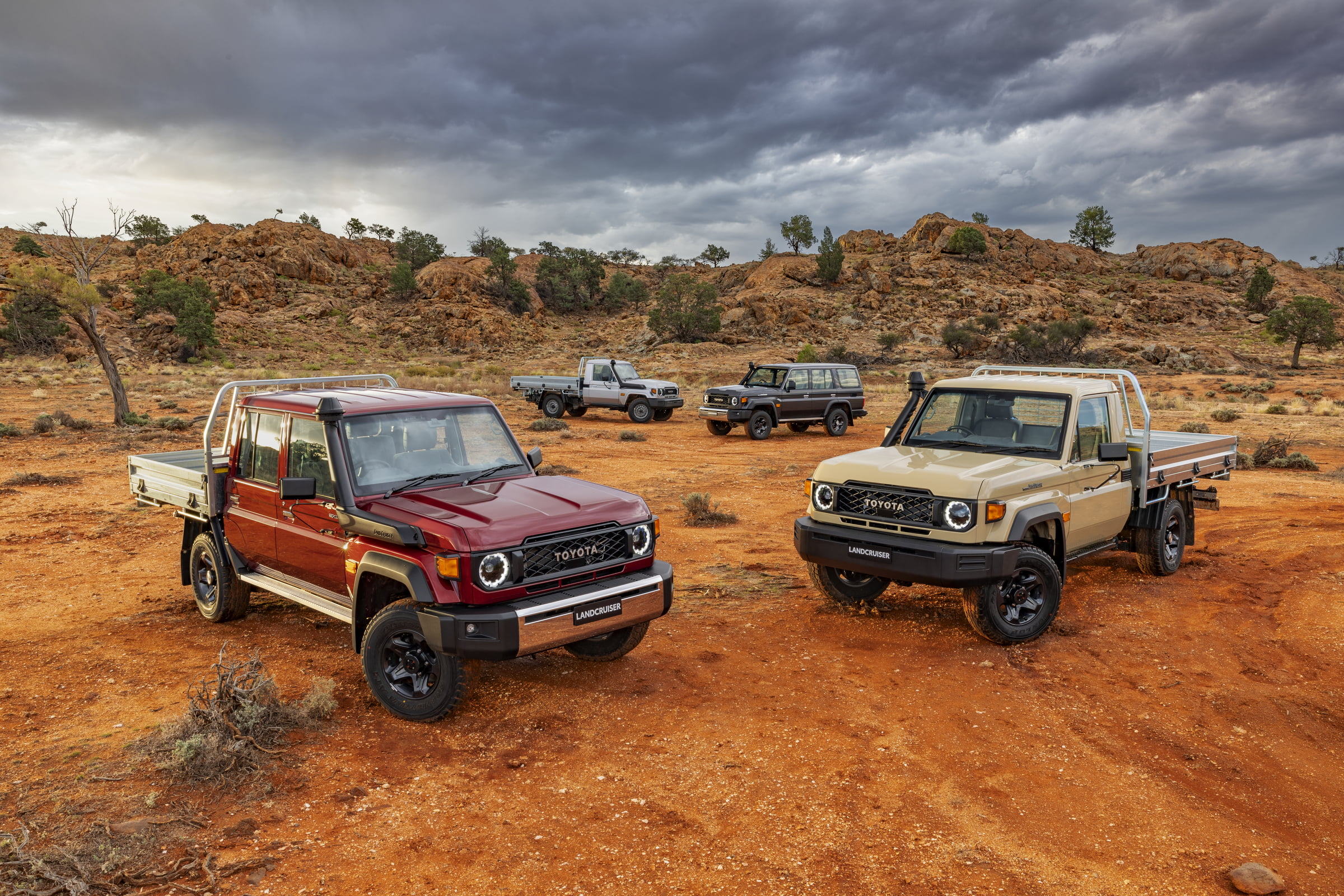
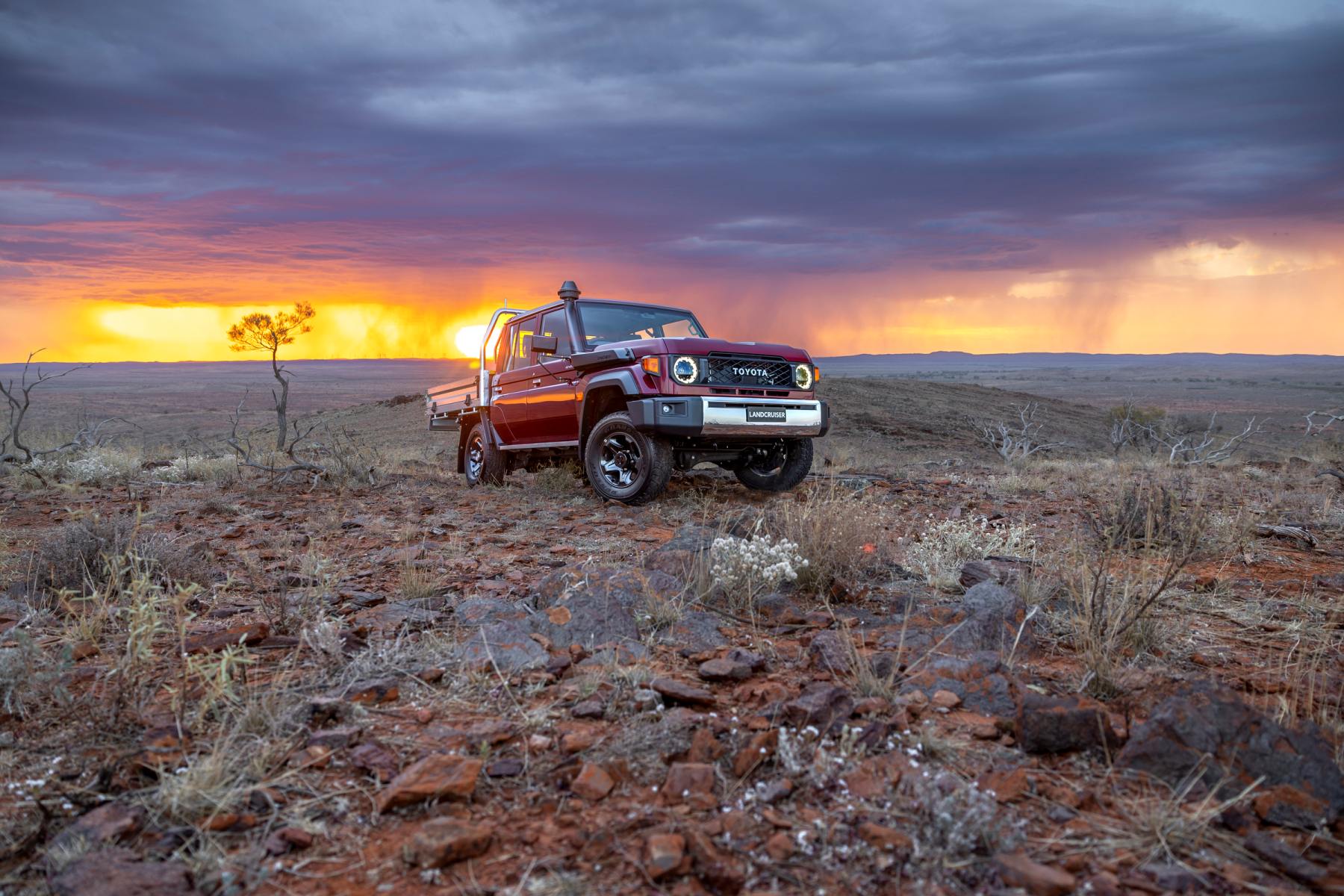
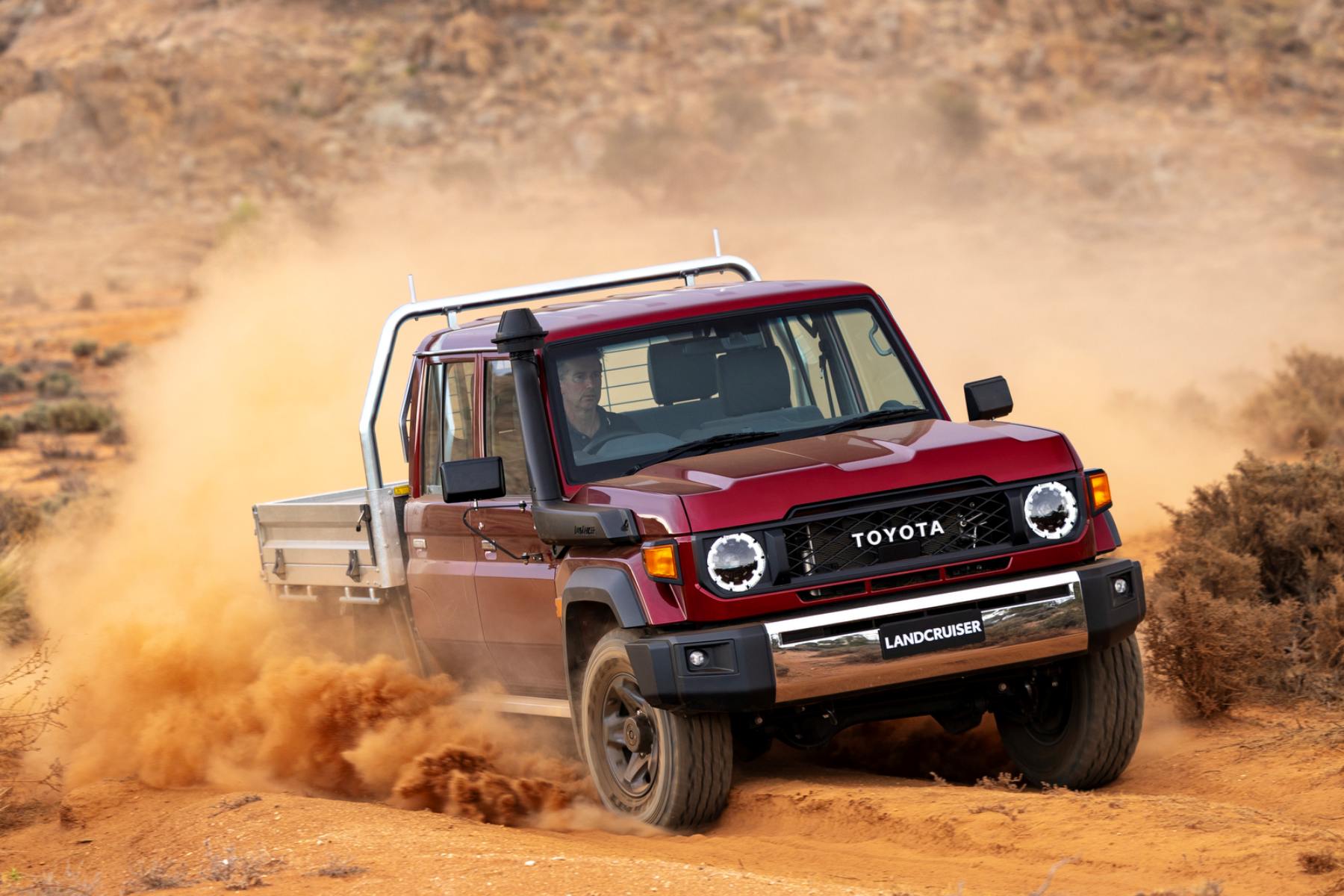
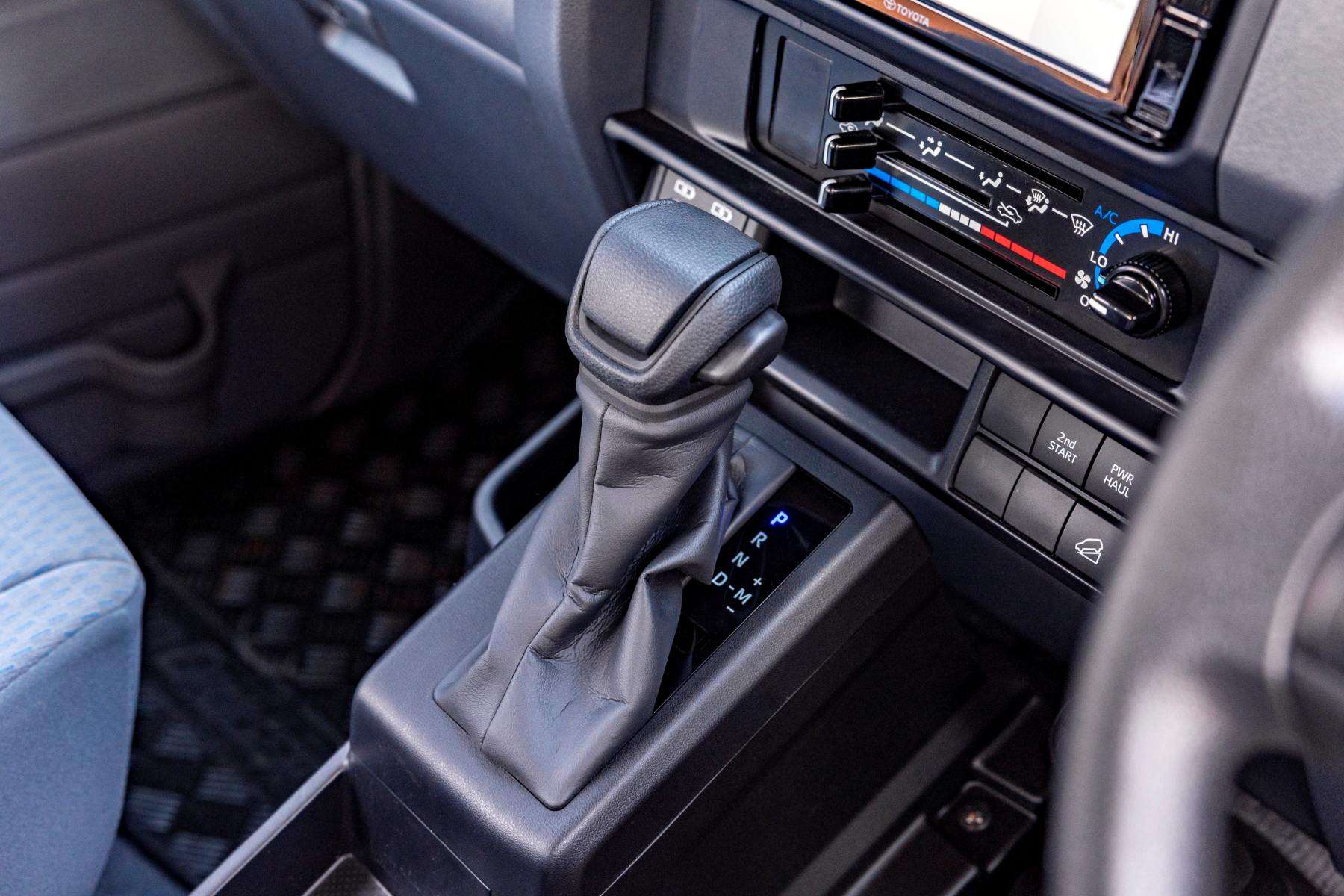
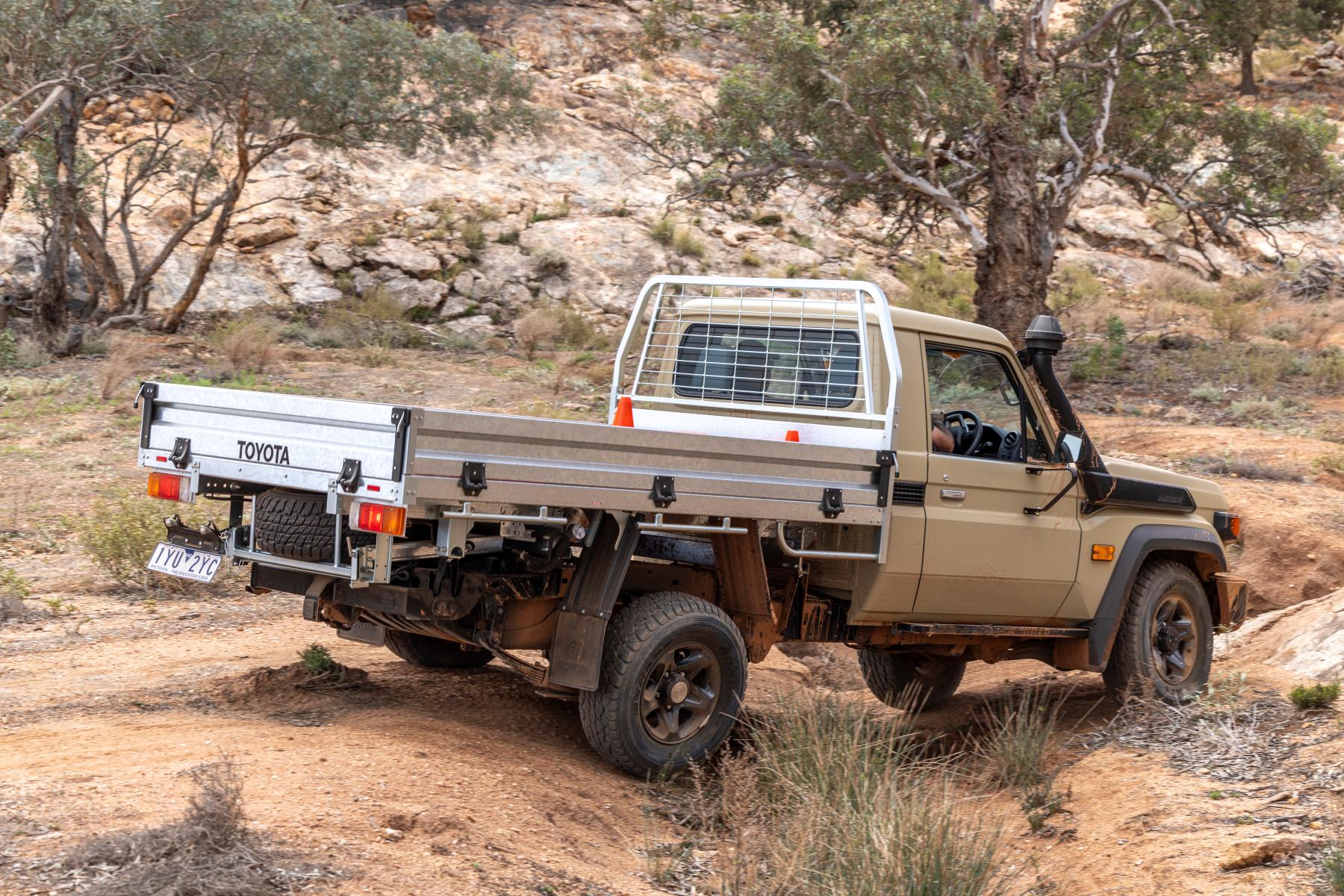
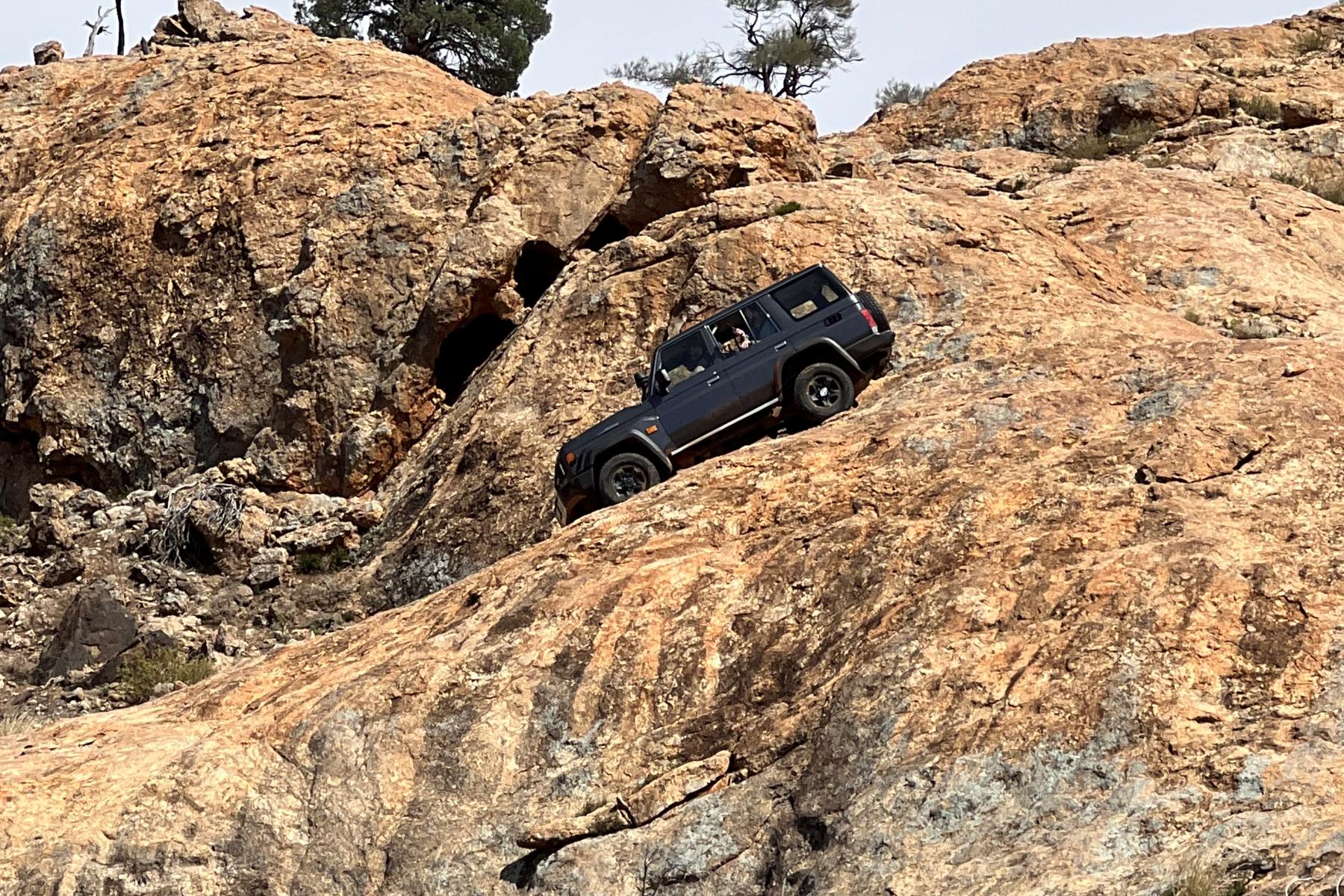
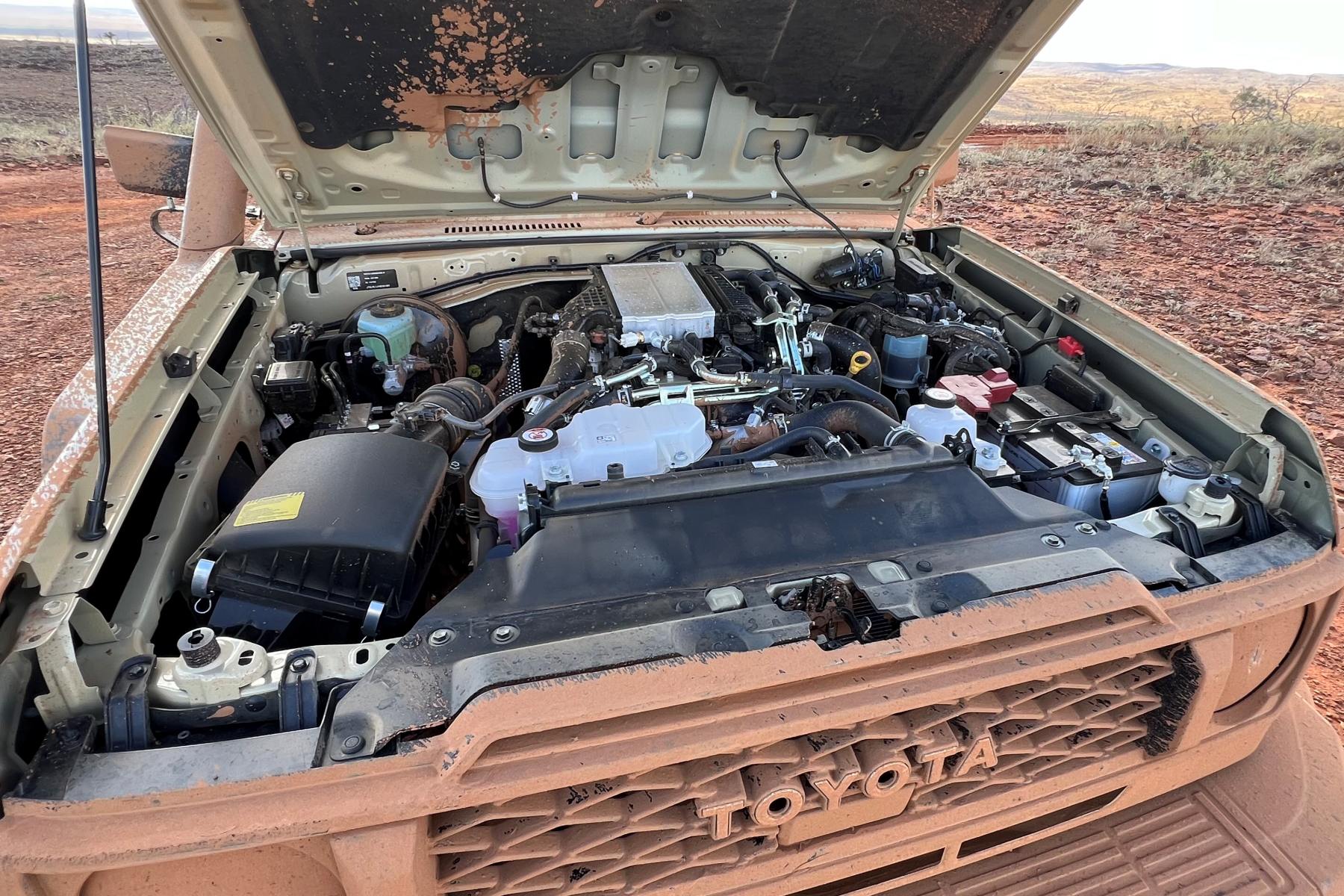
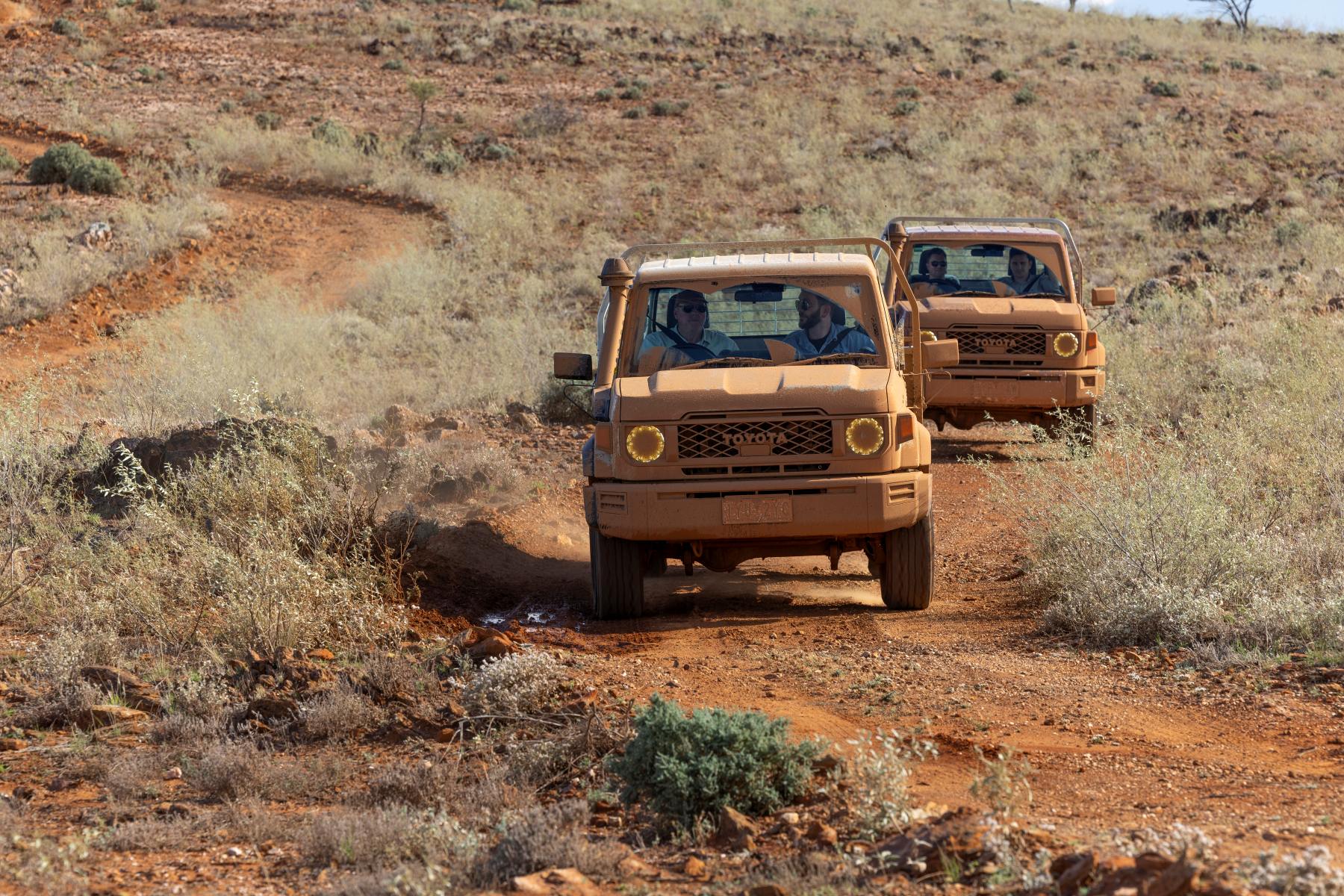
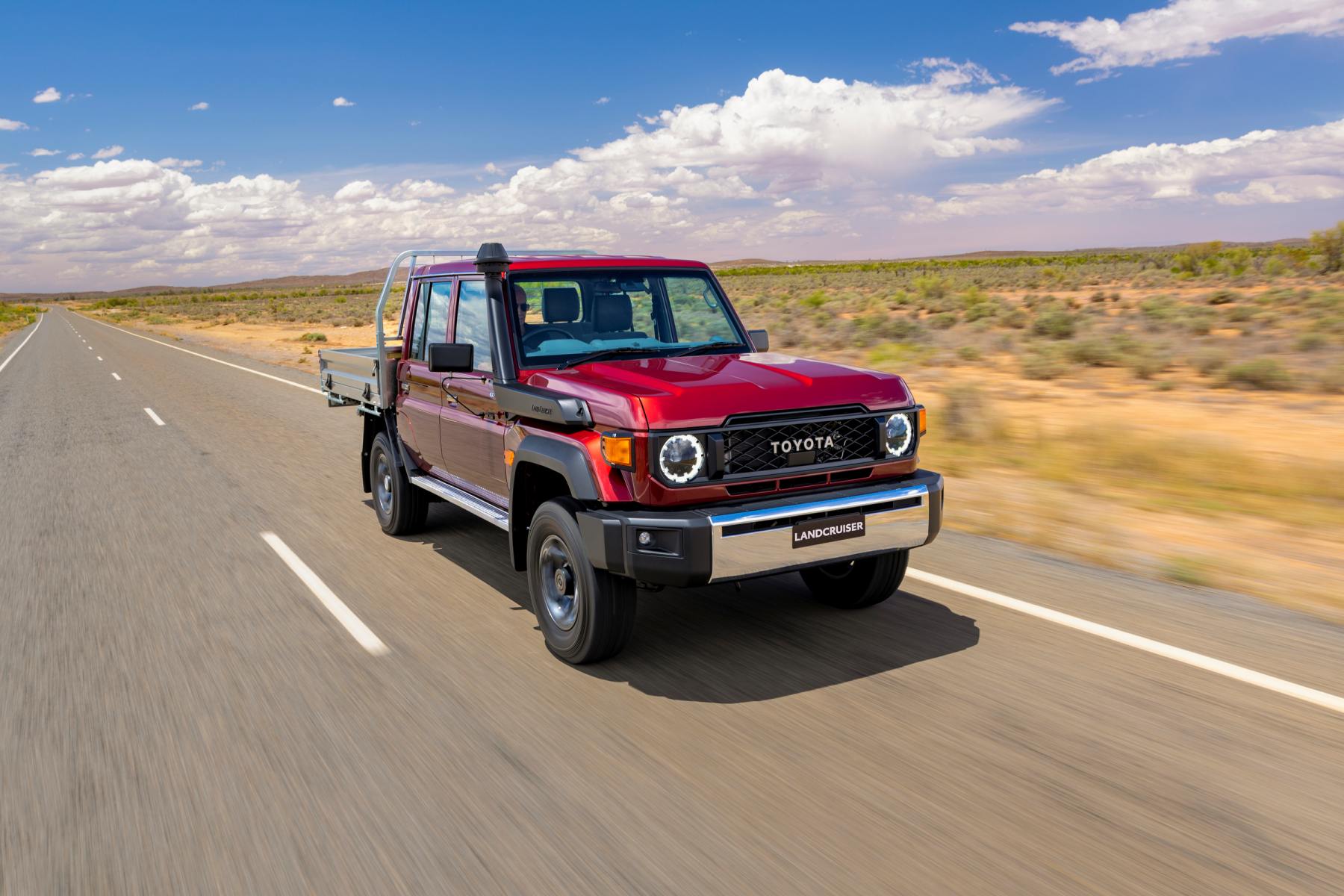
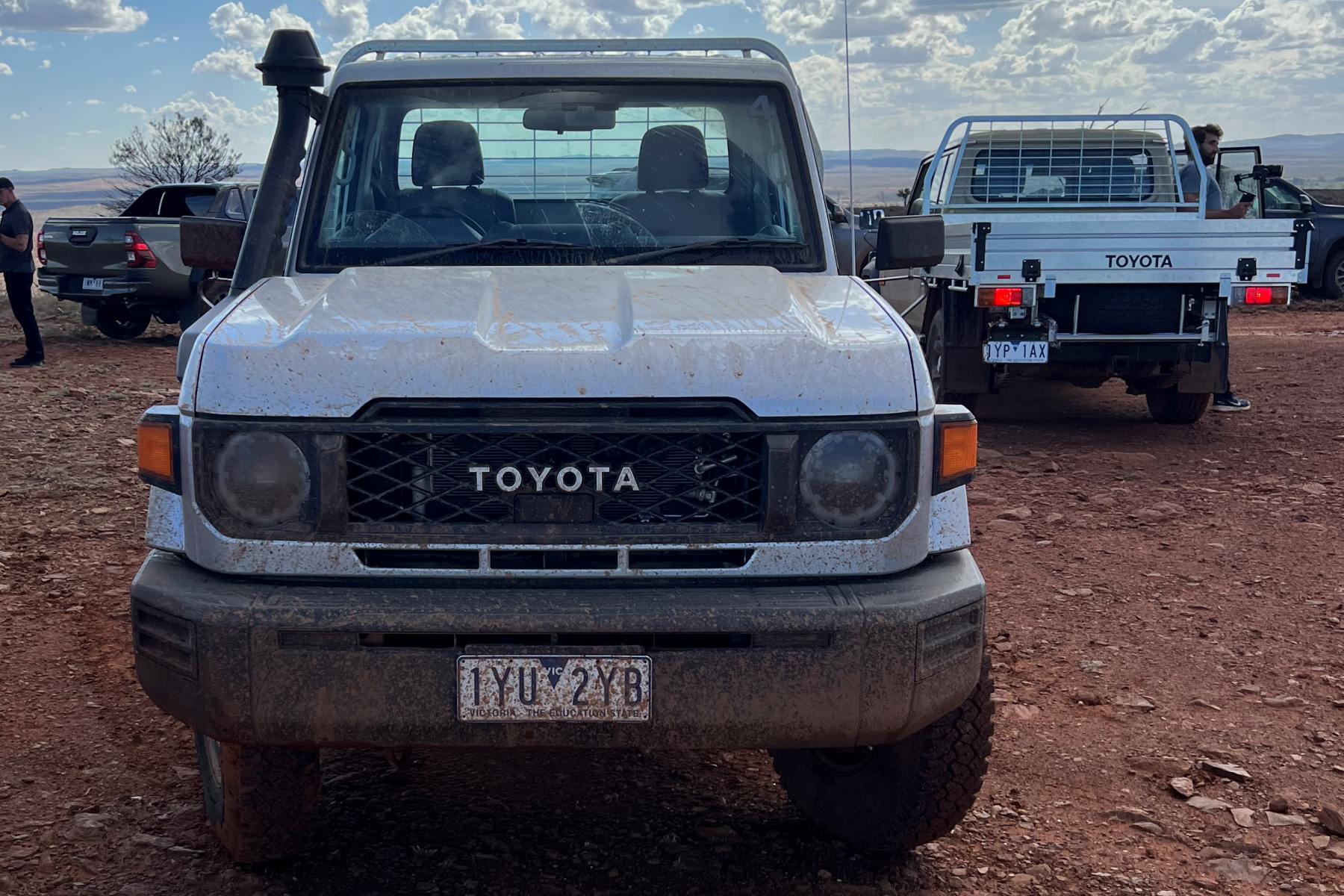
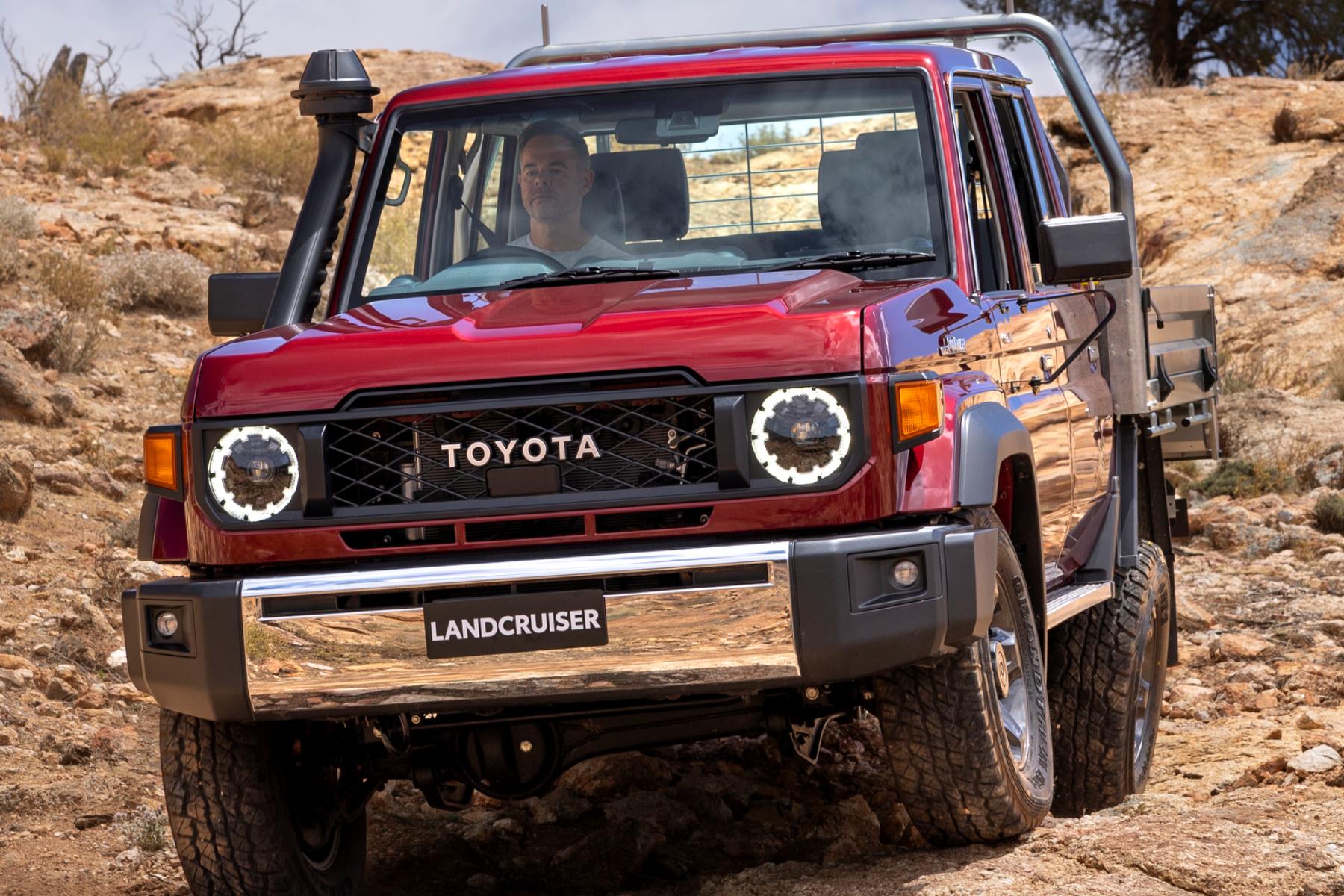
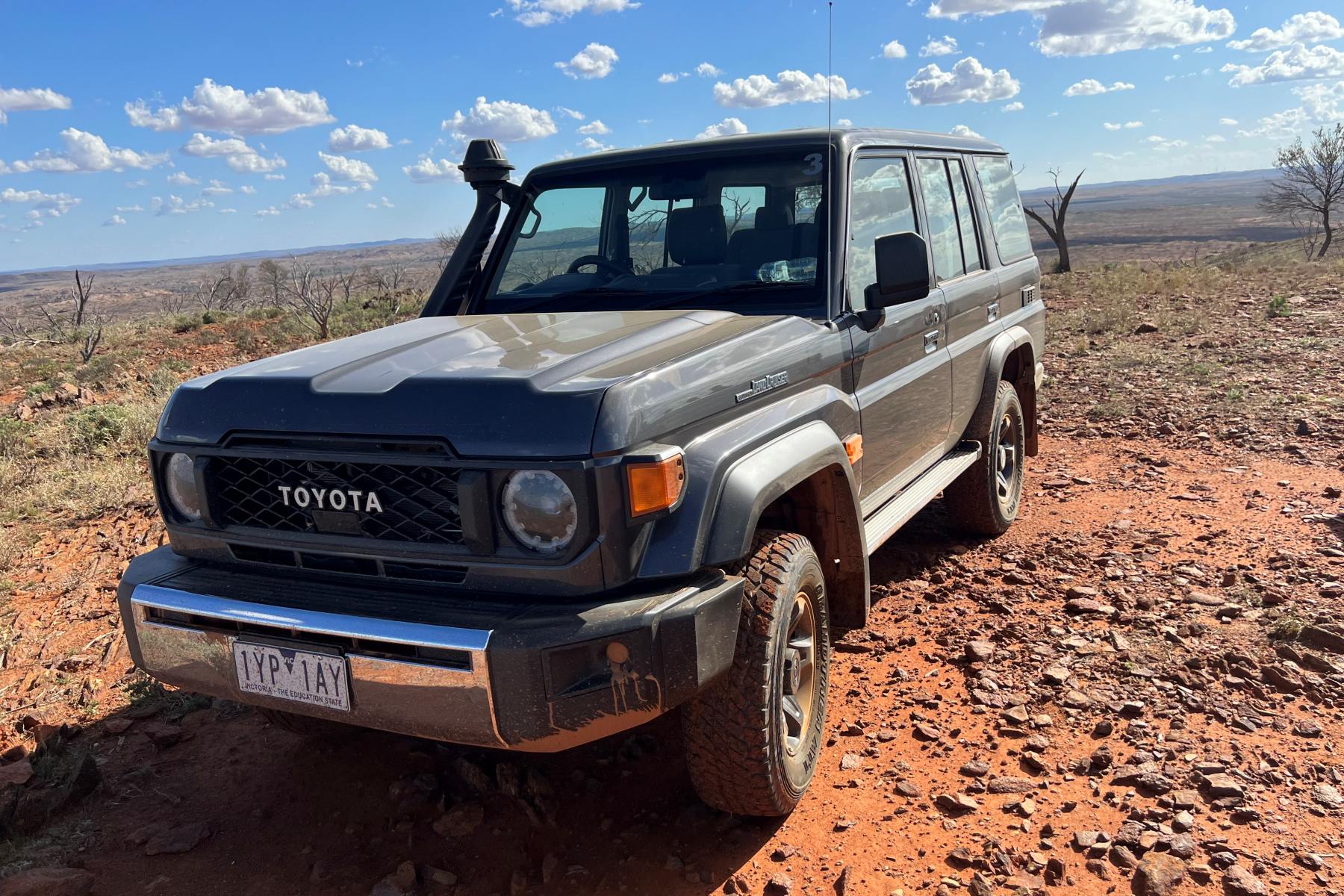
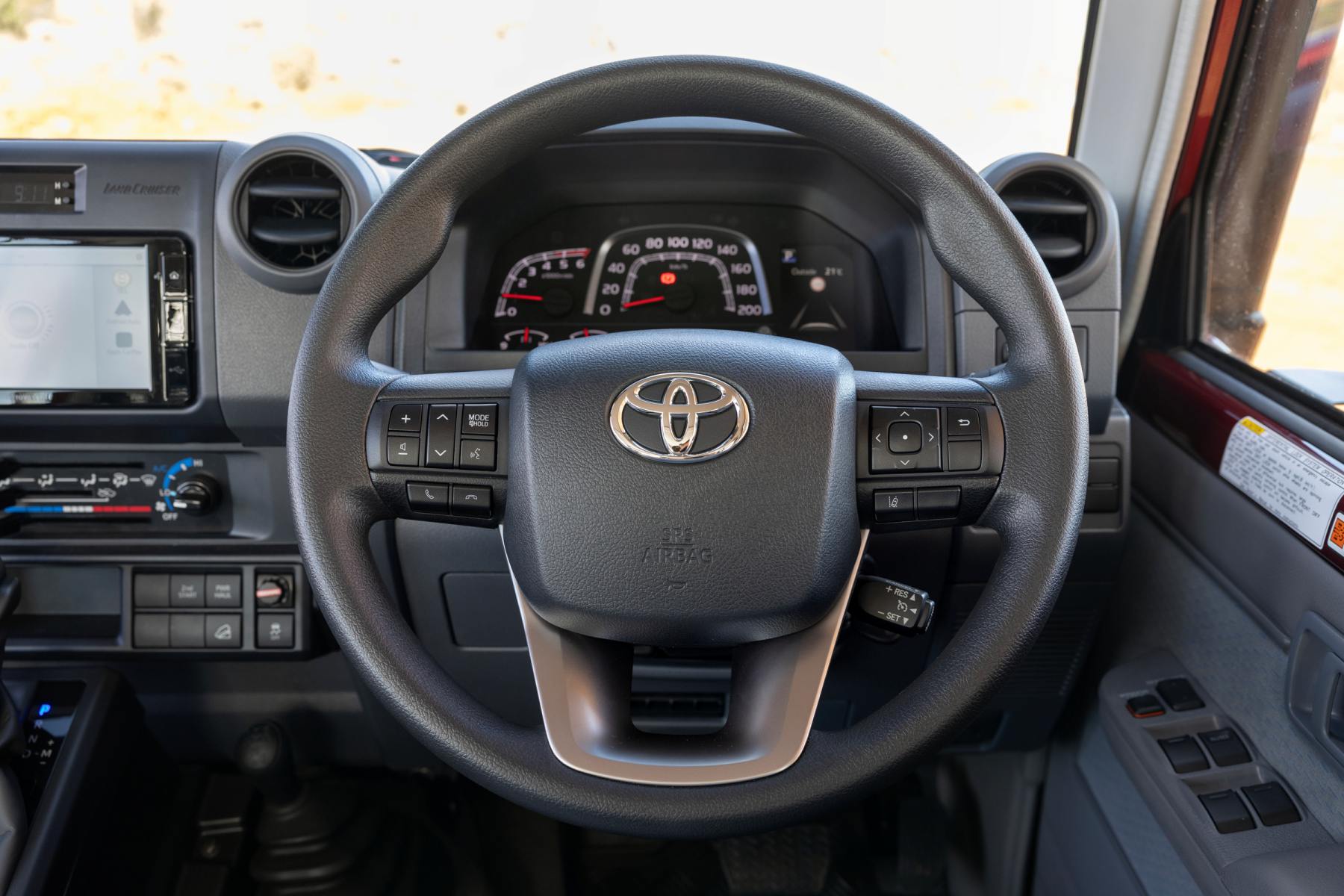
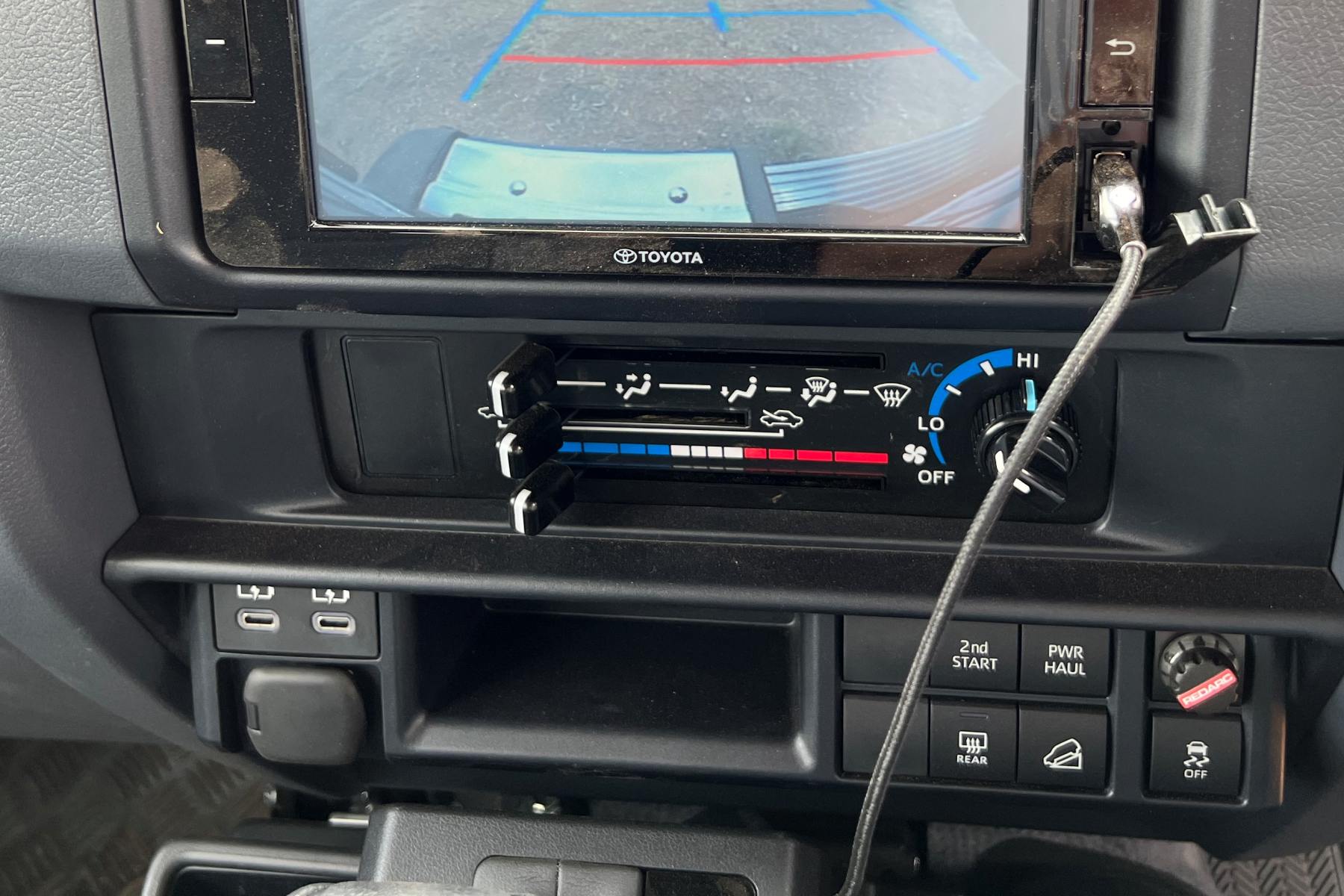
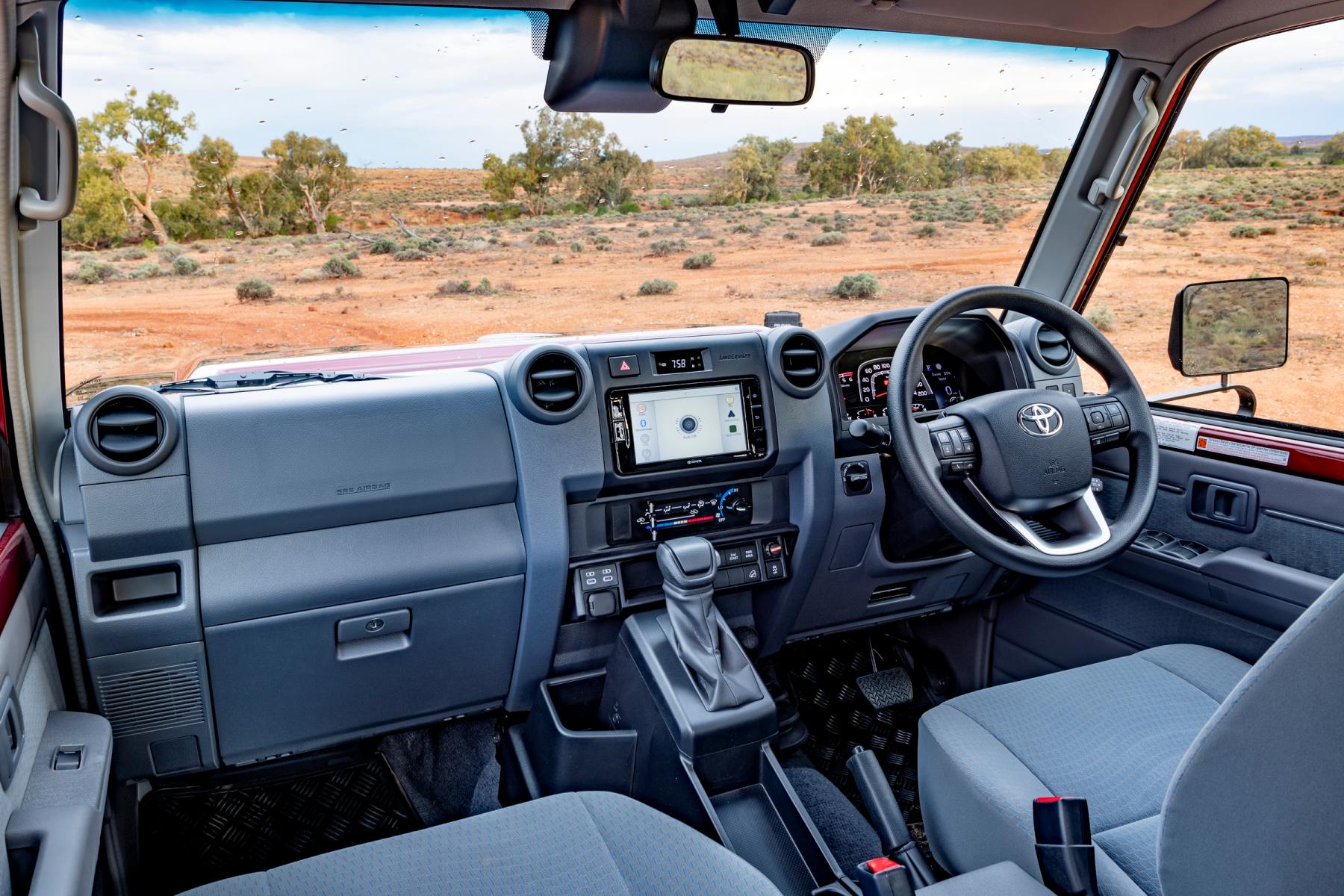
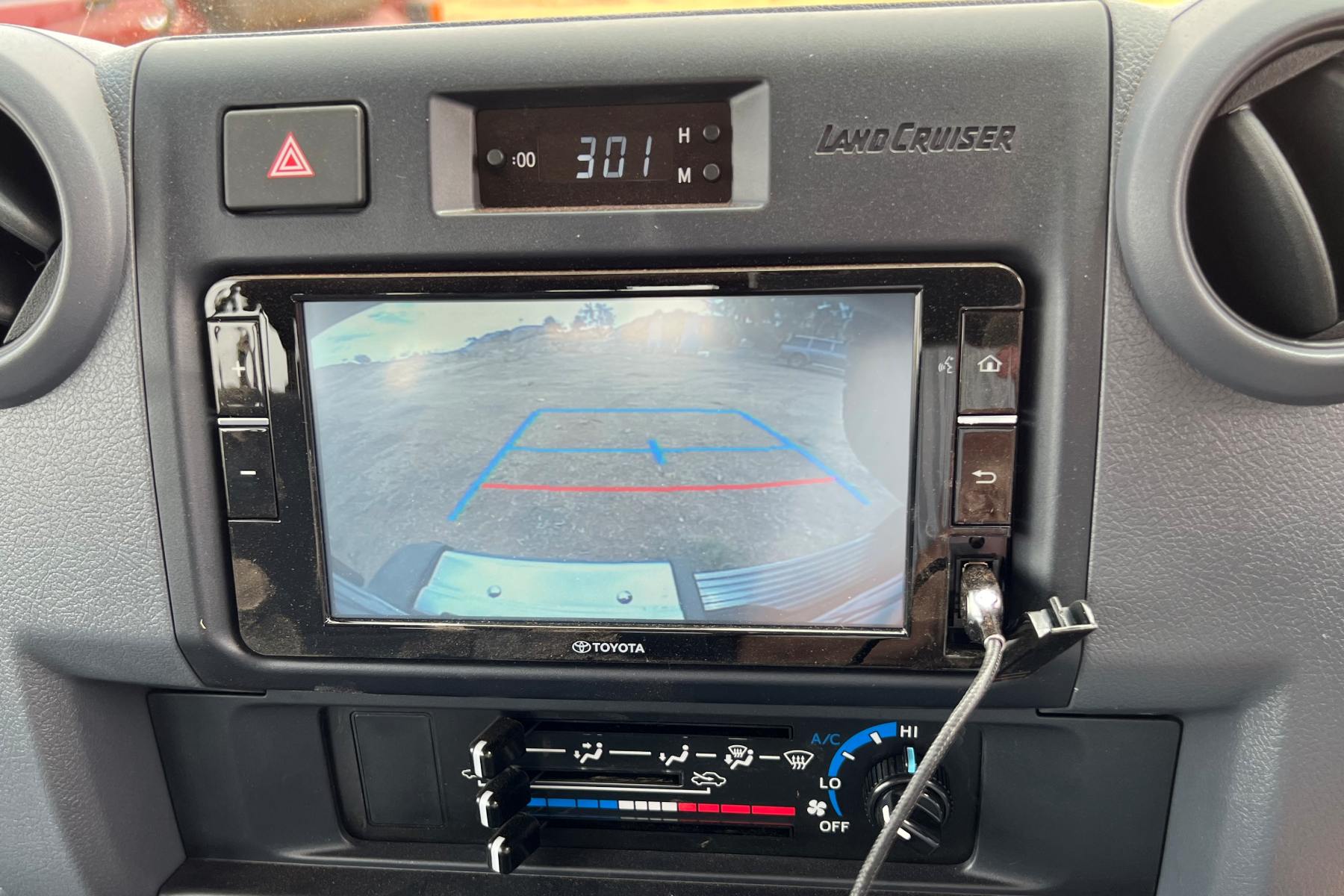
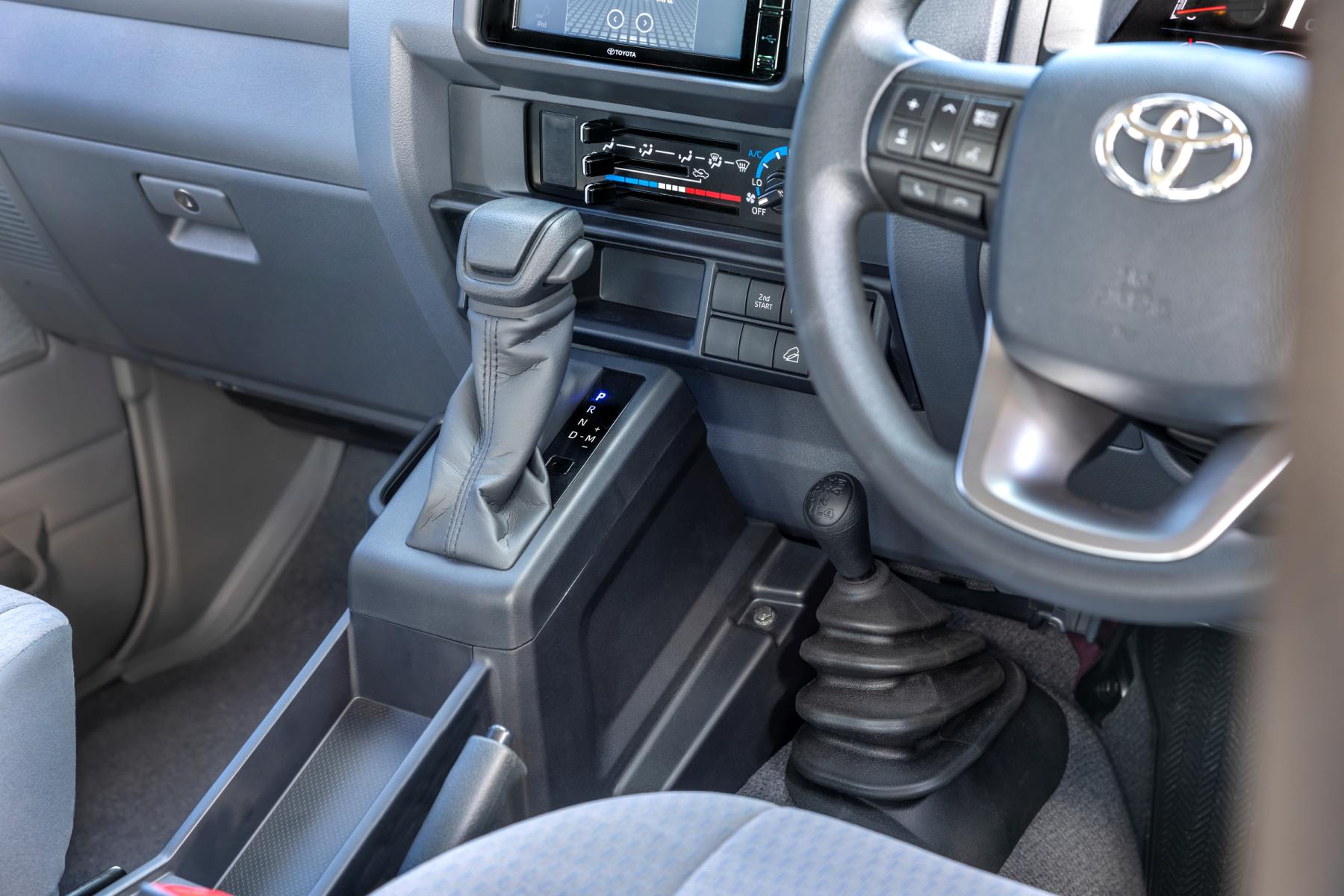
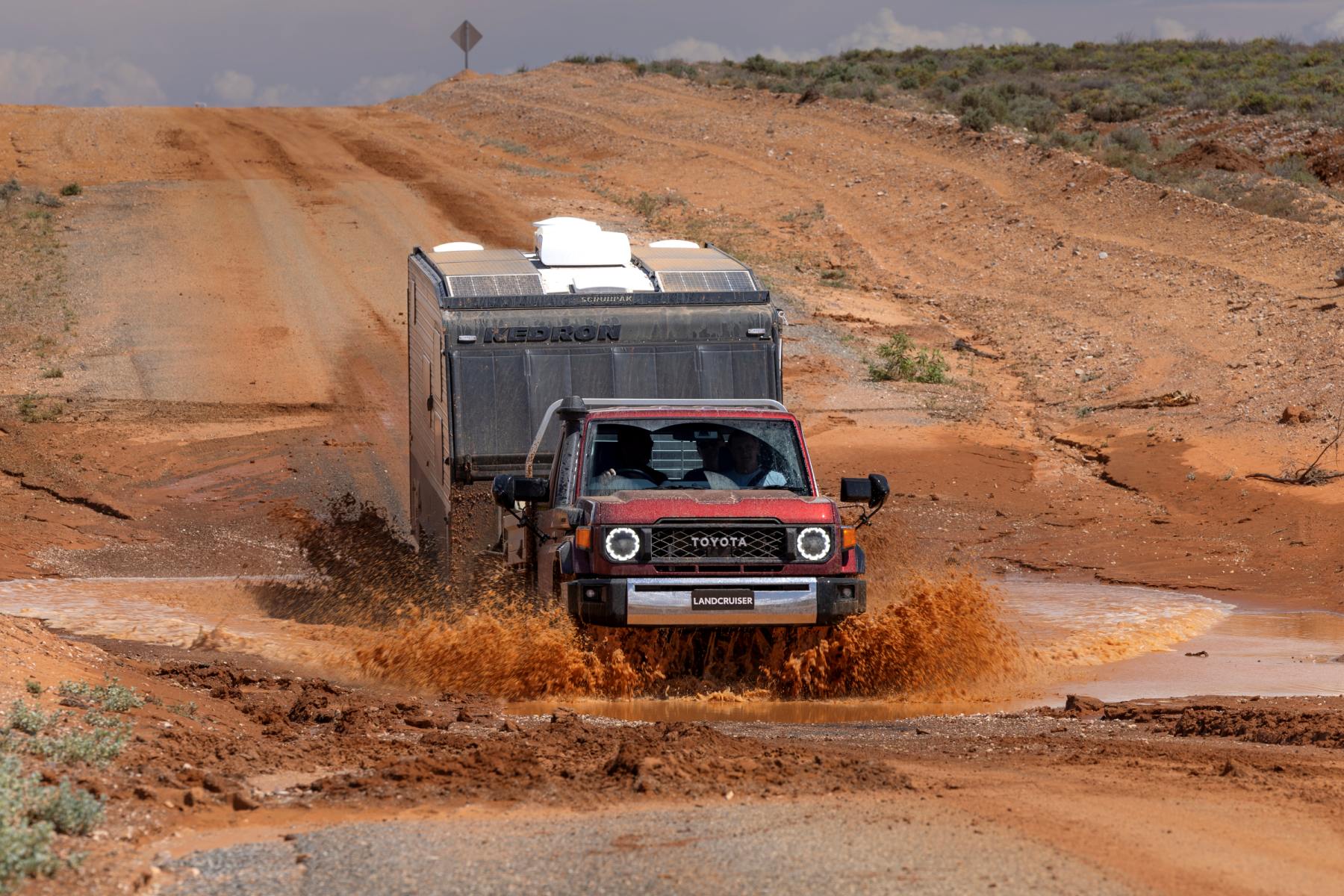
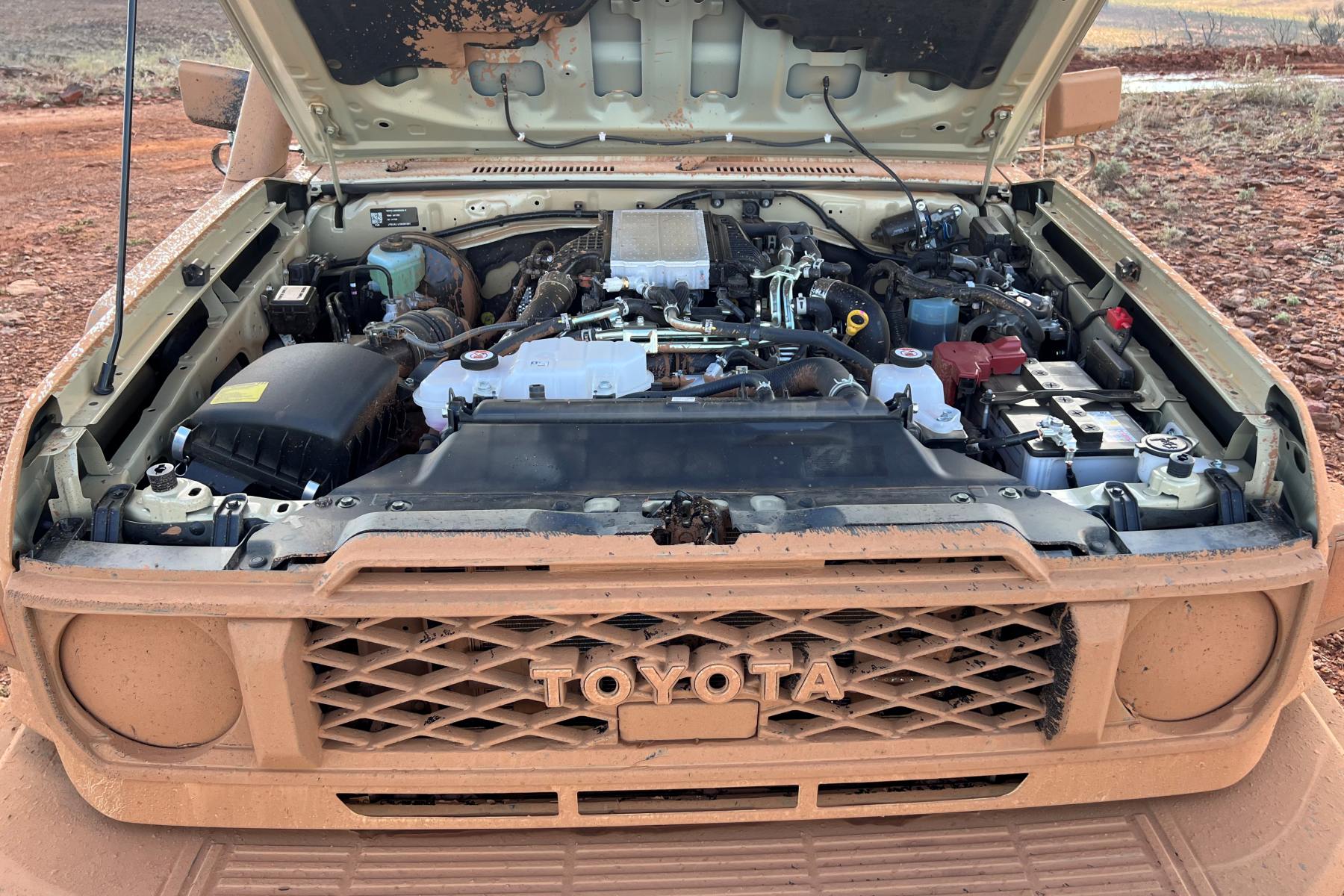
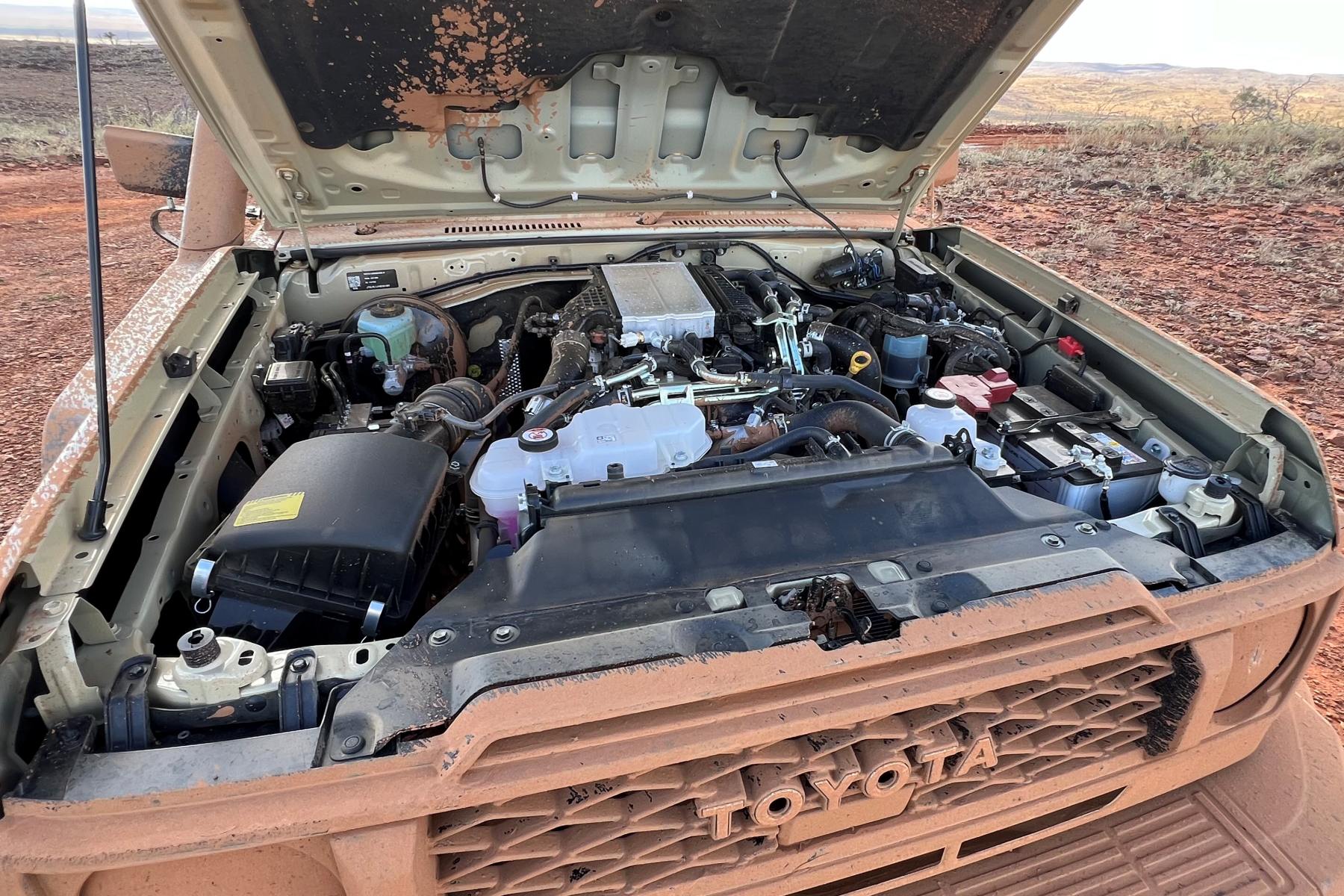
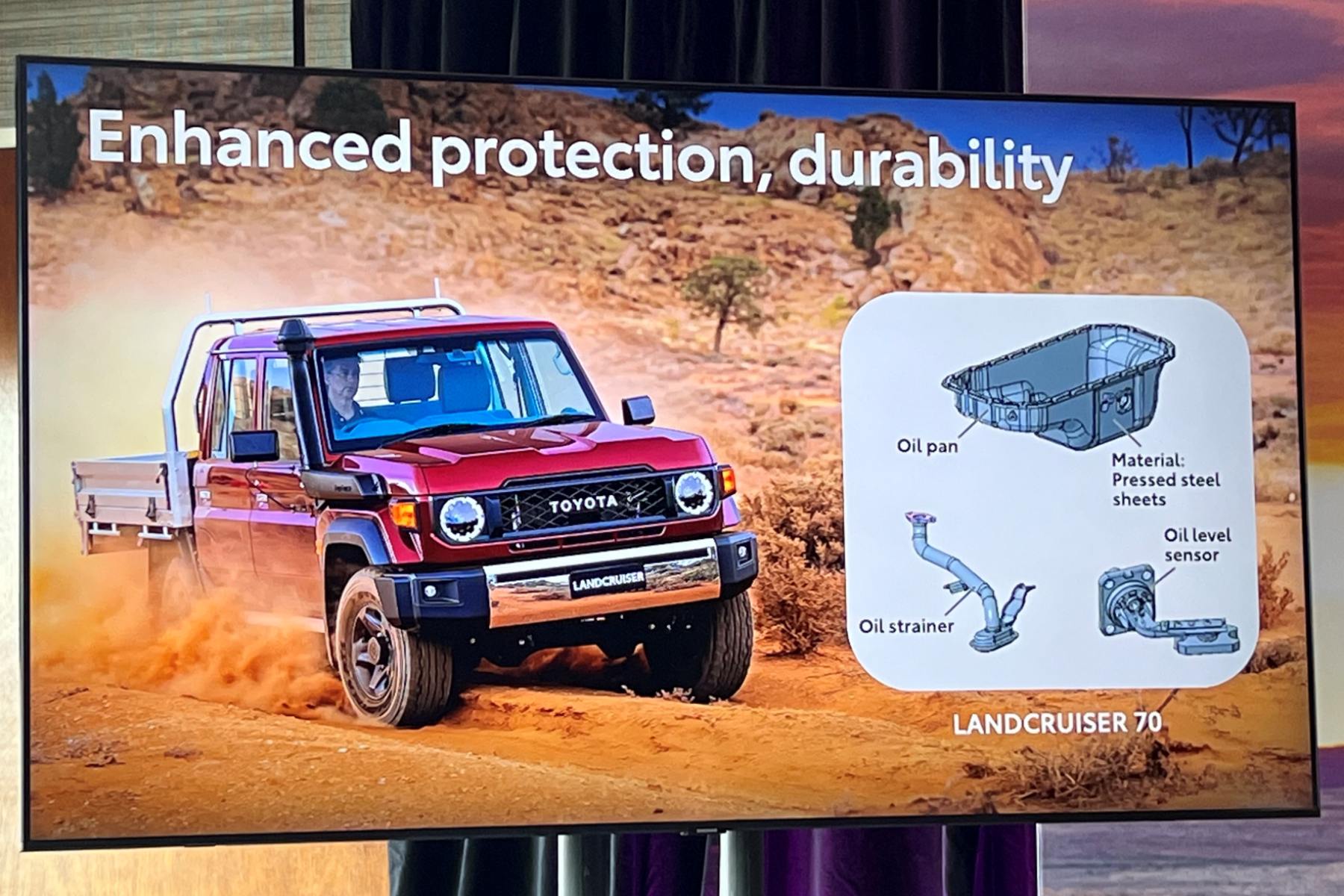
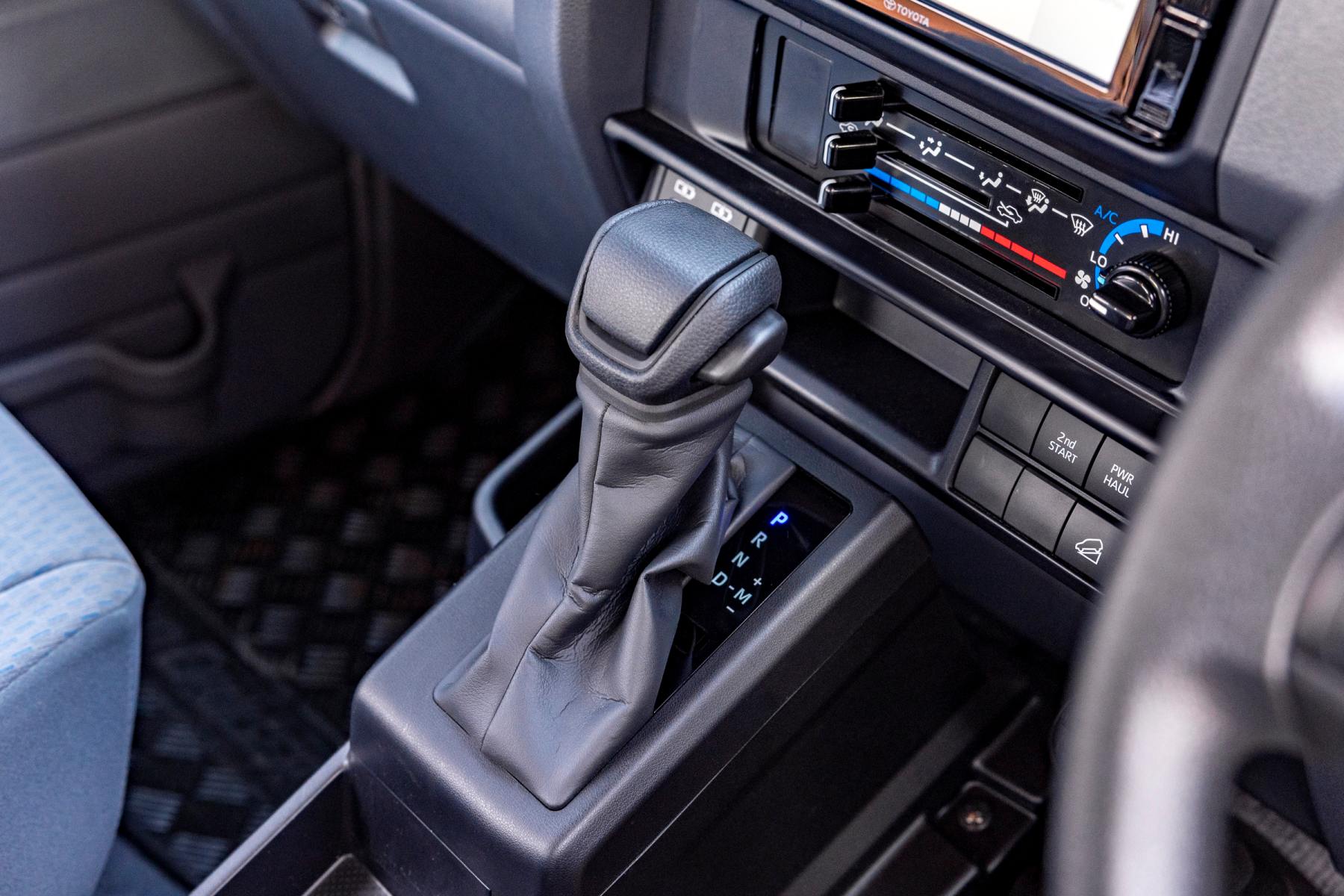
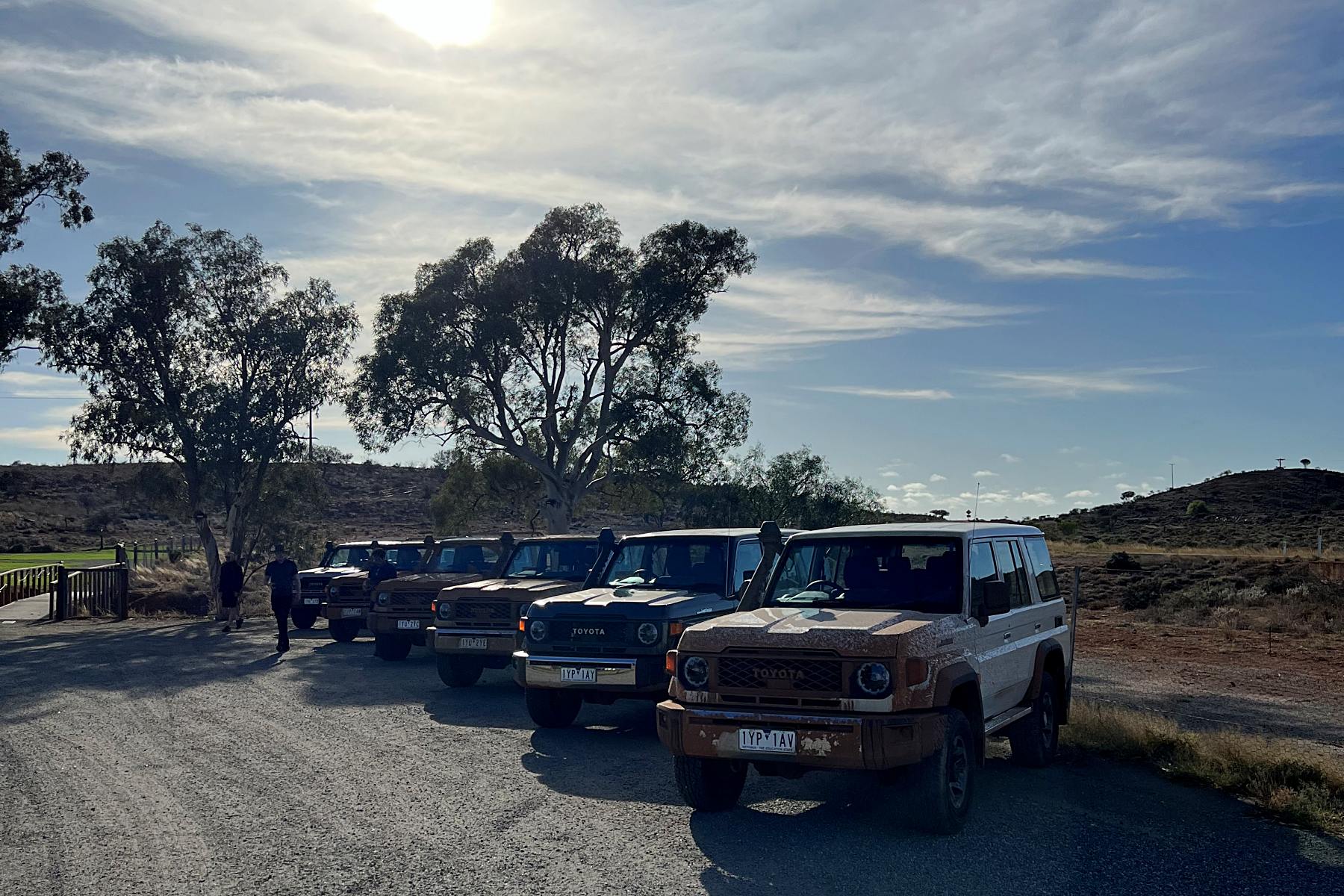
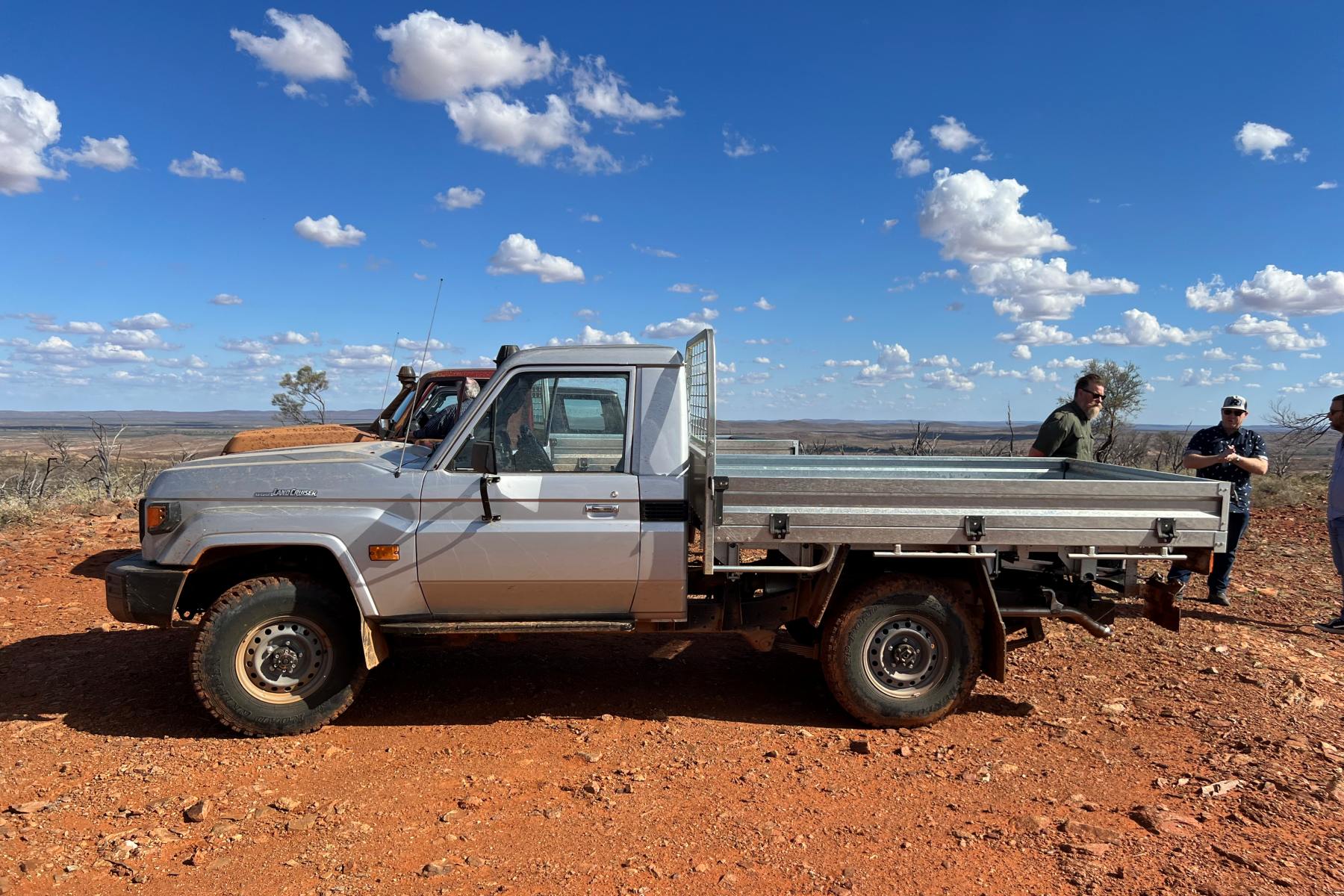
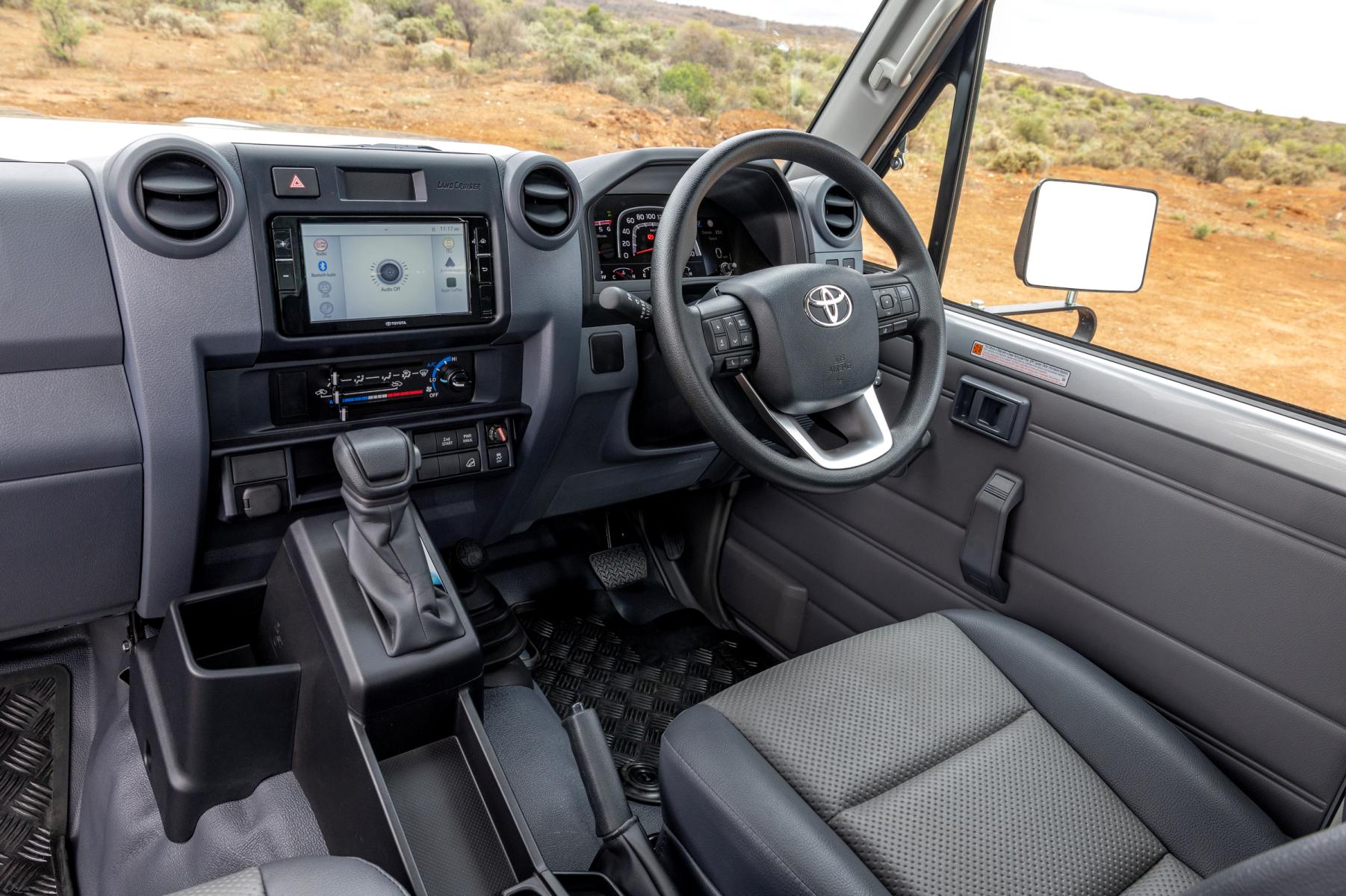
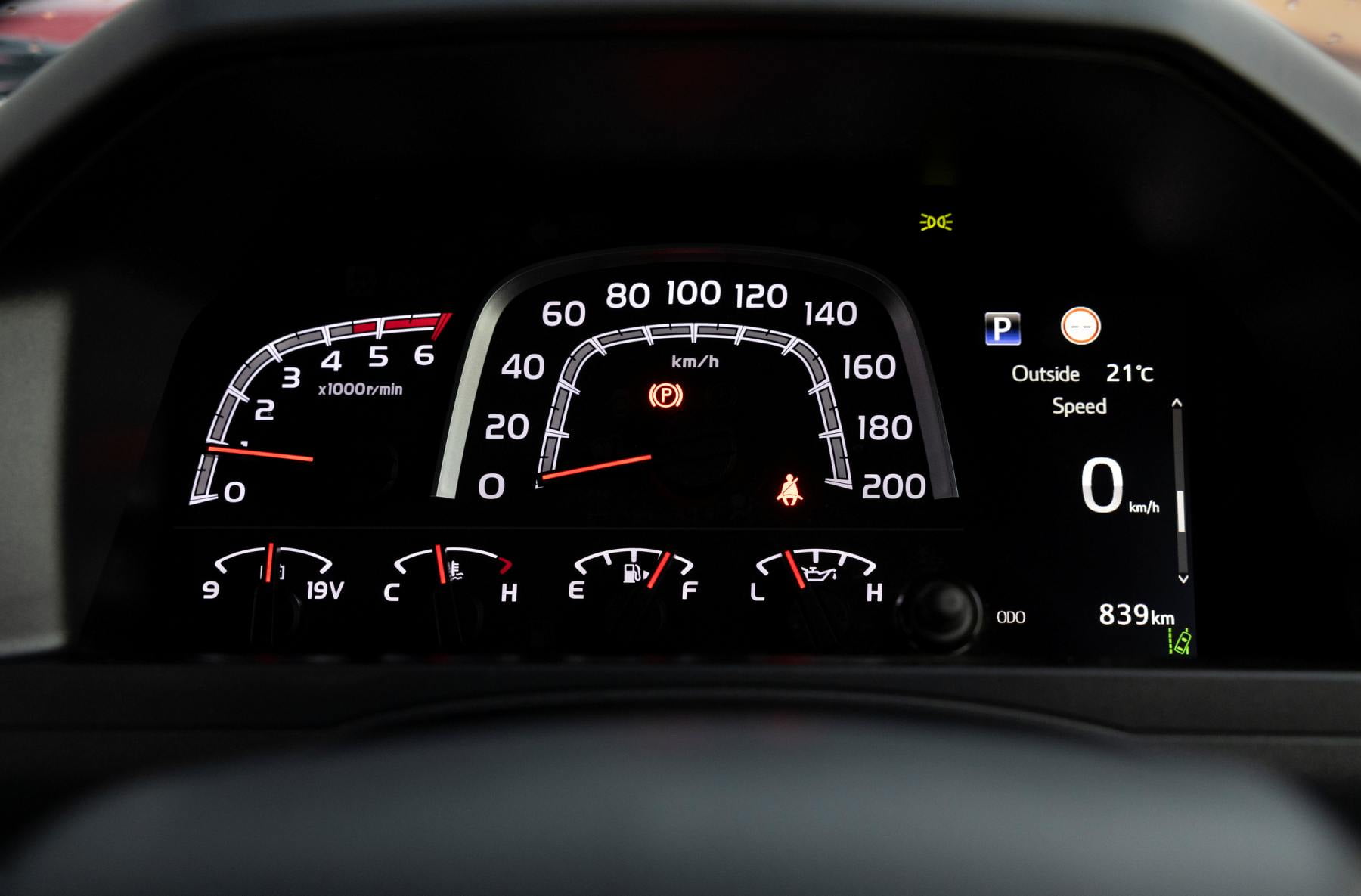
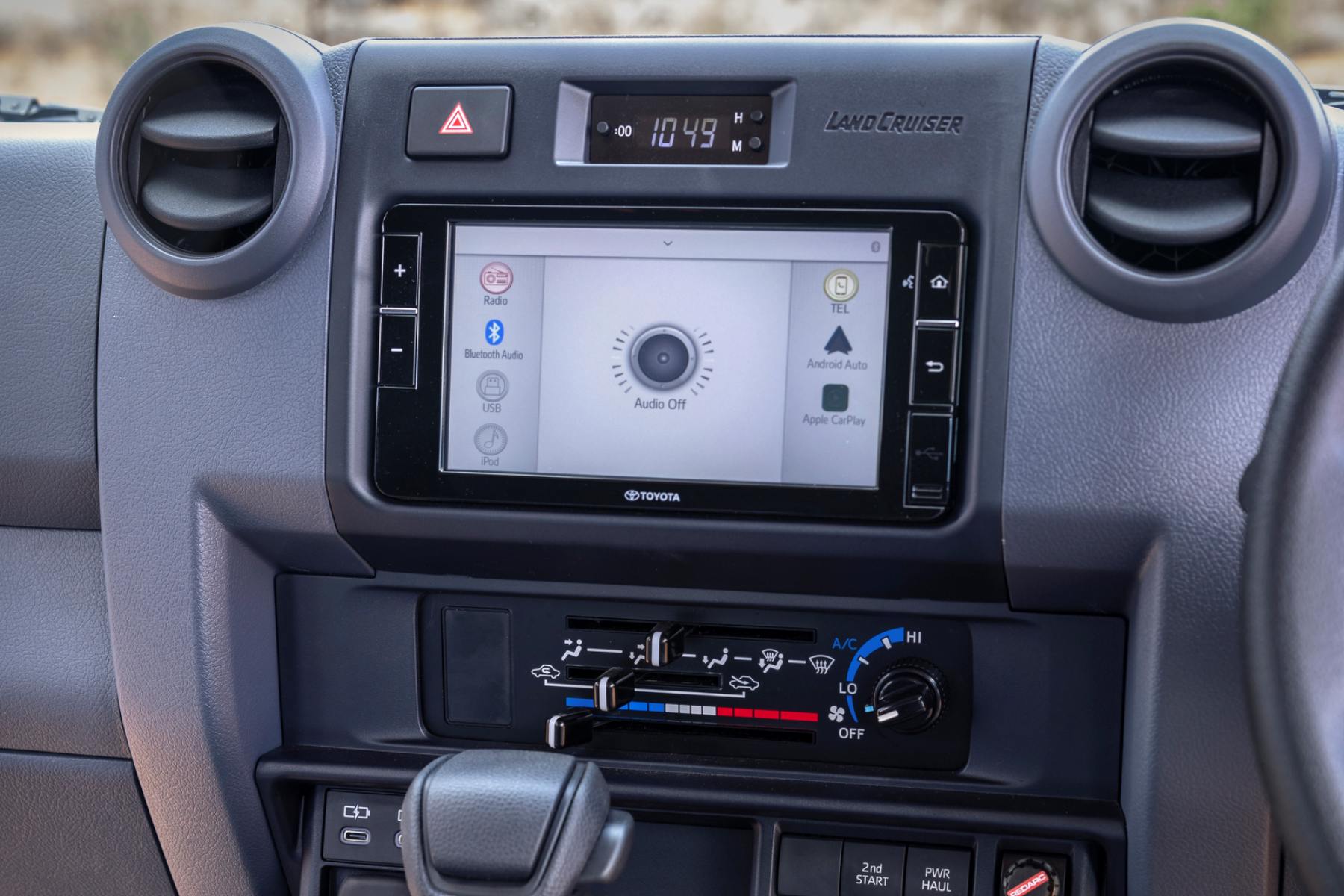
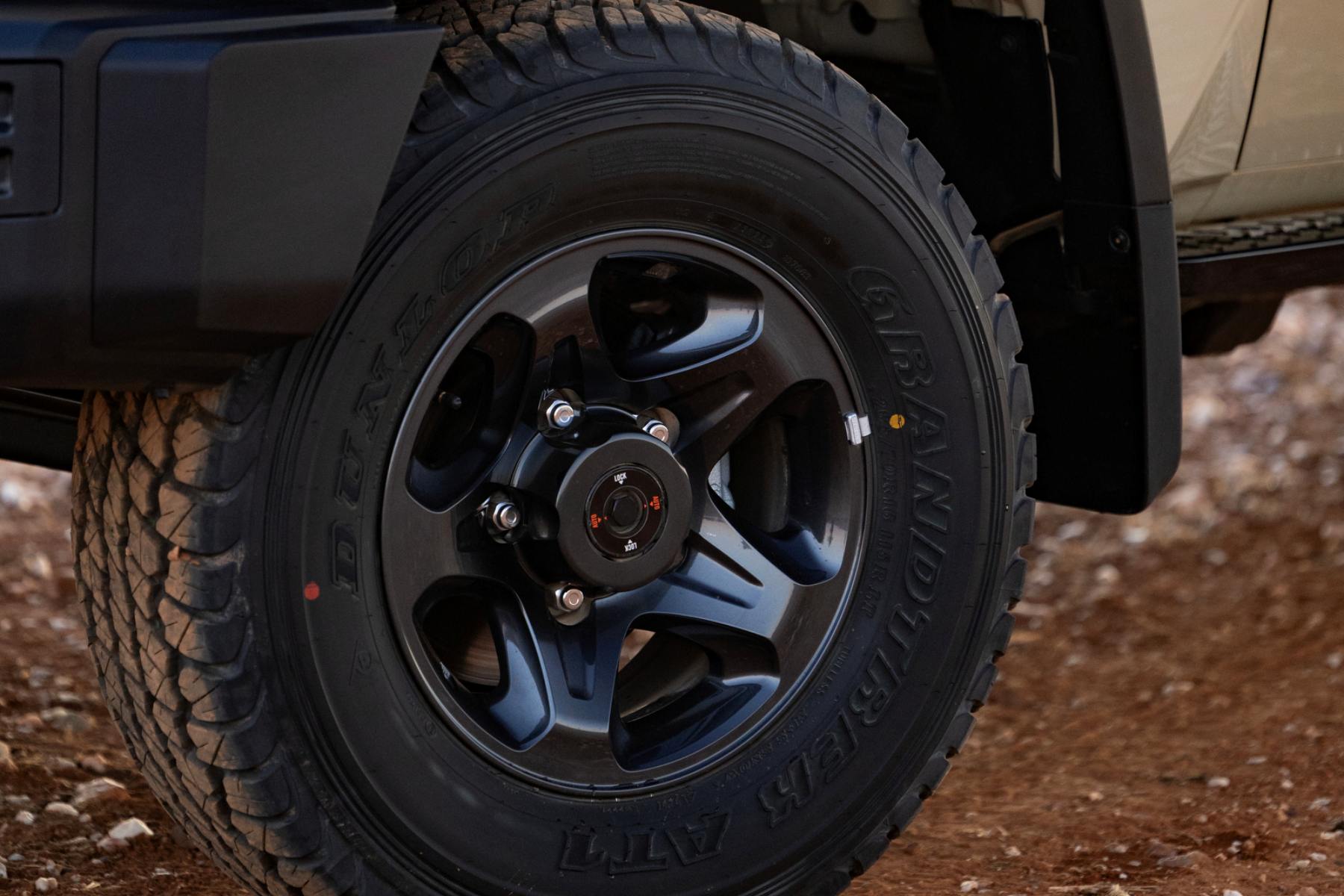
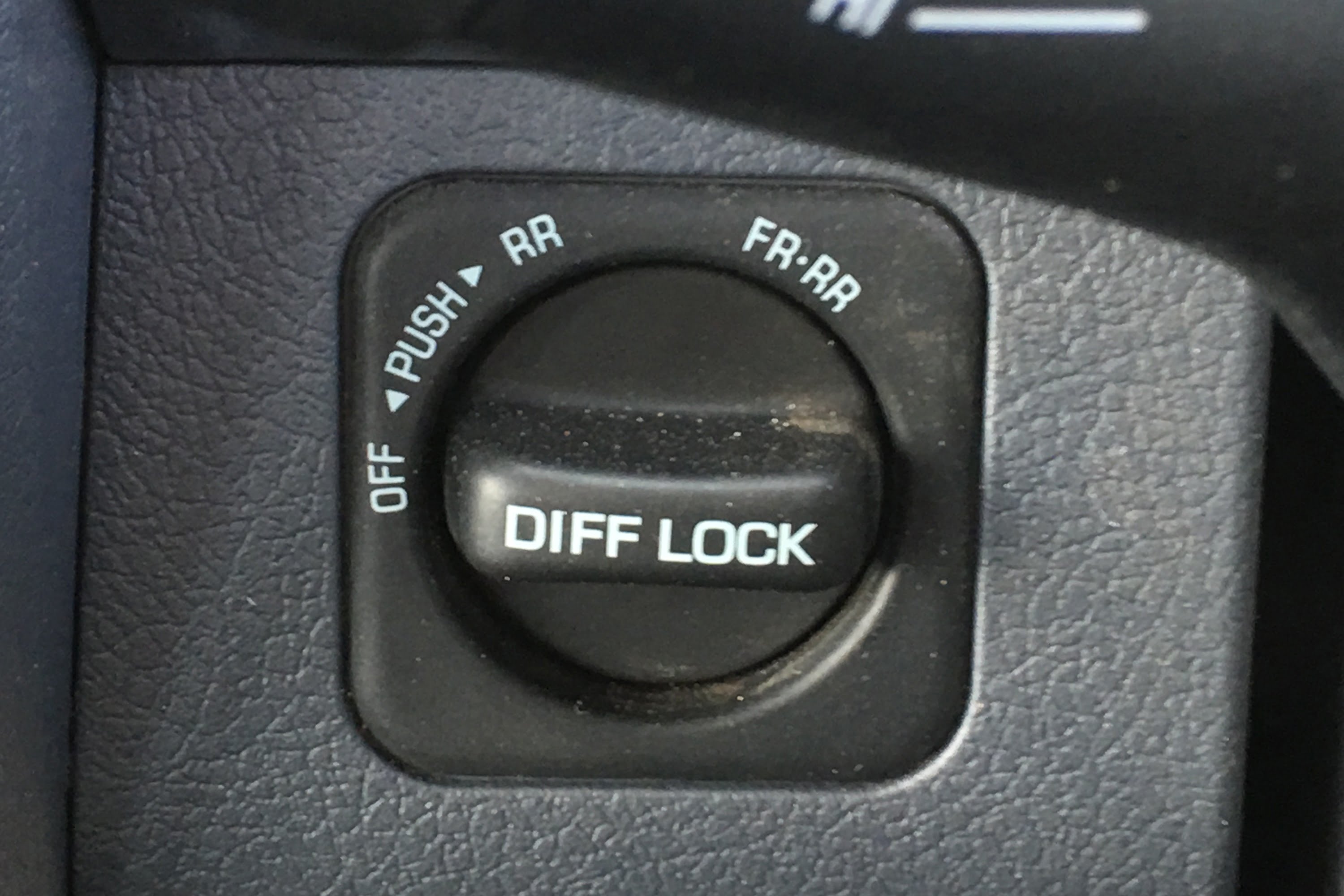
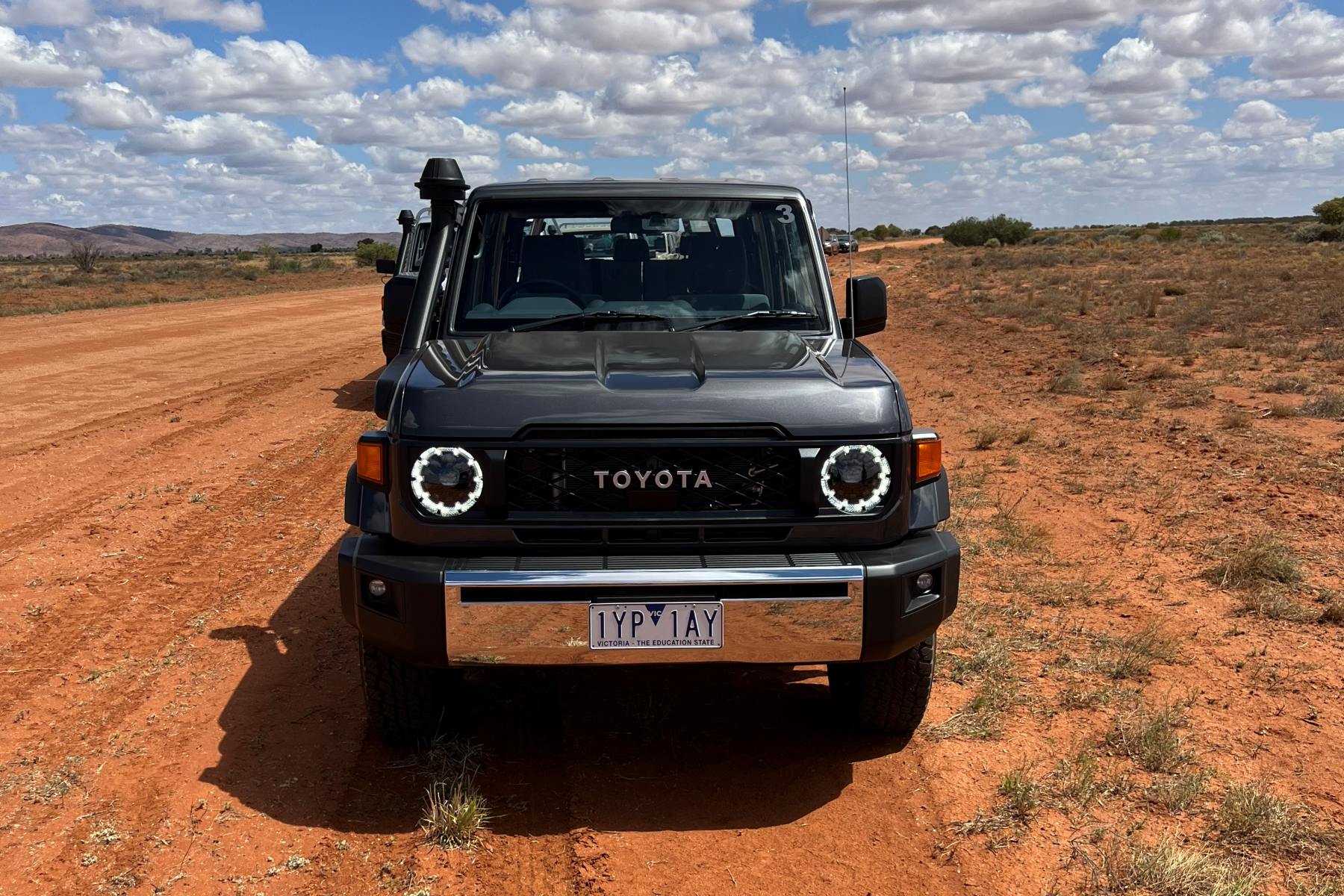
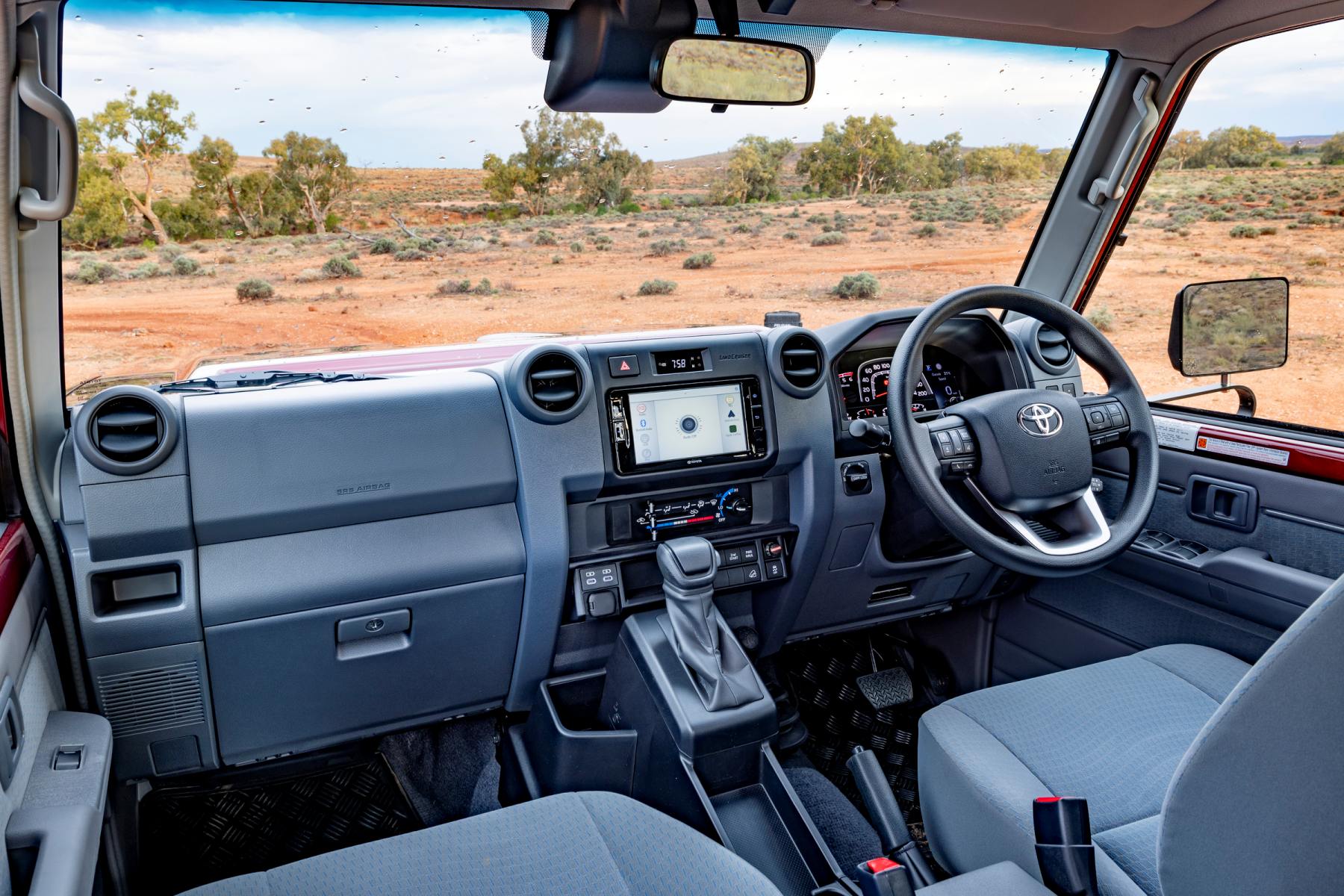
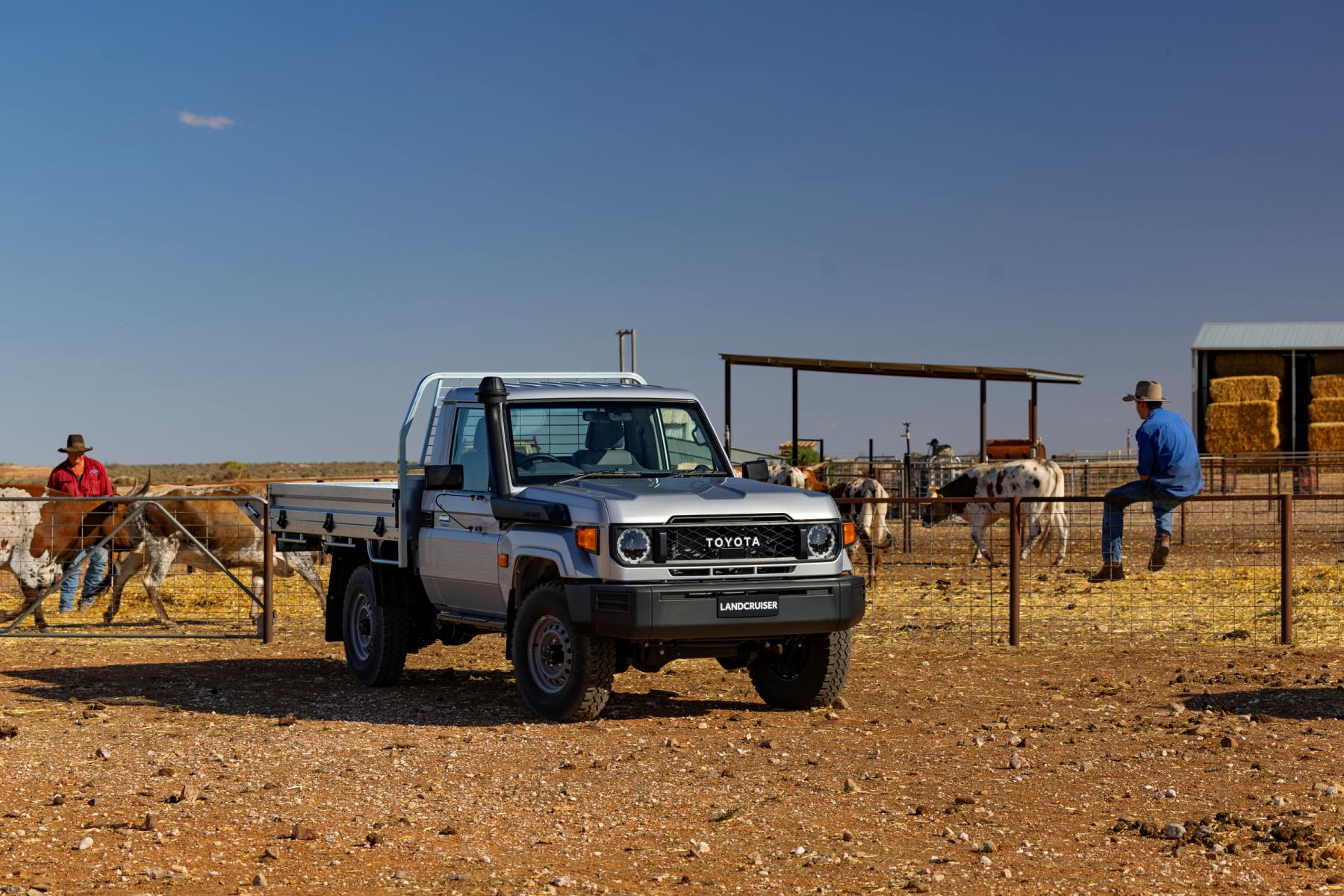
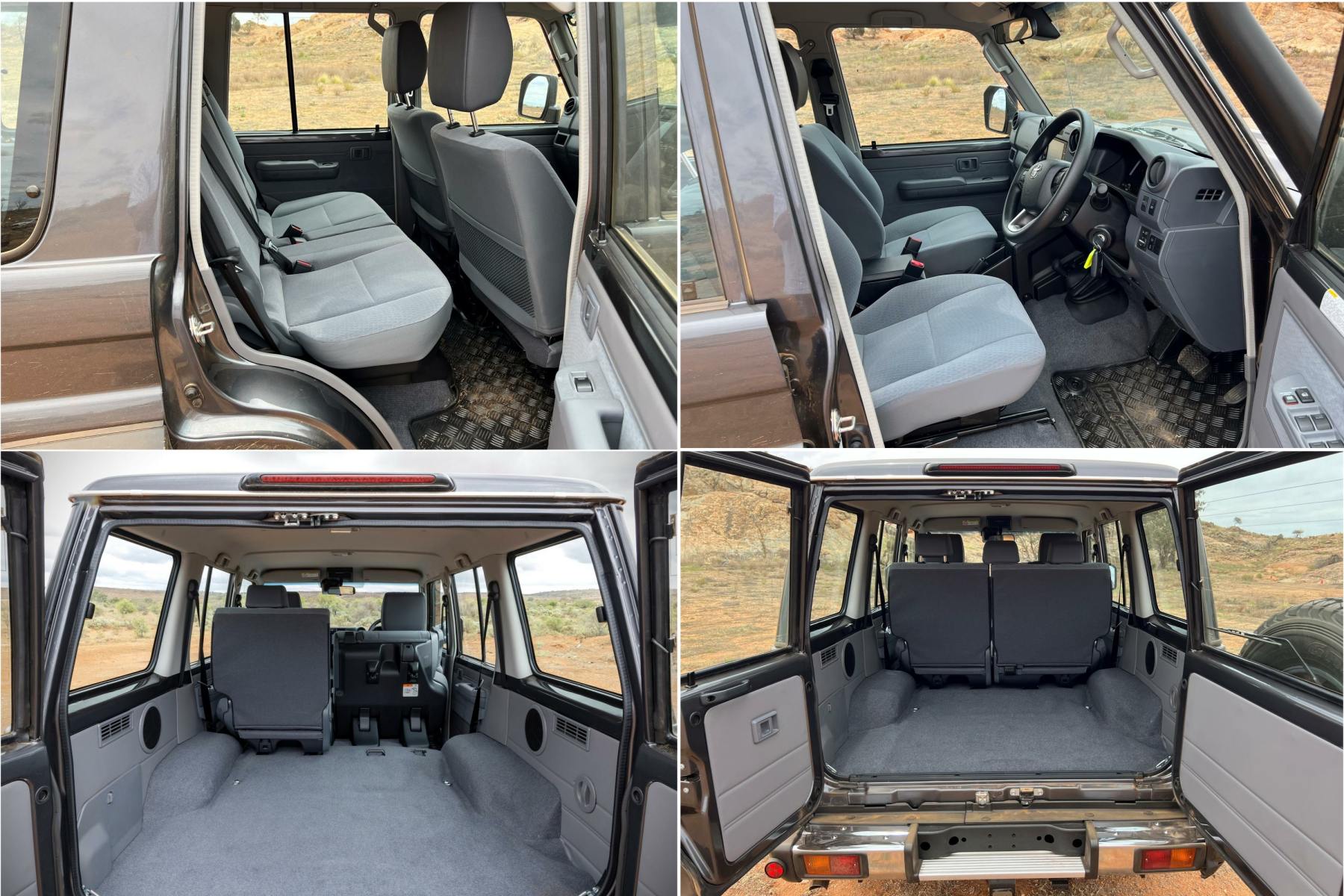
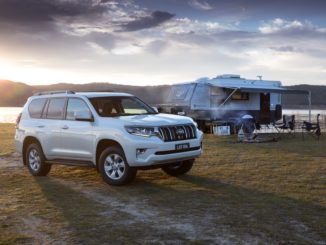
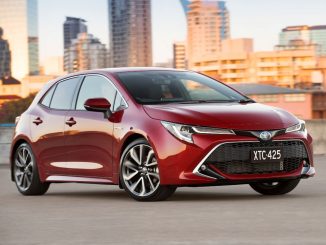
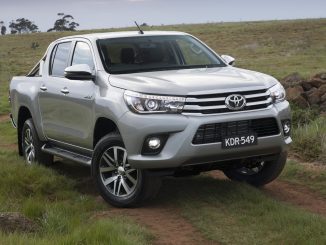
Be the first to comment